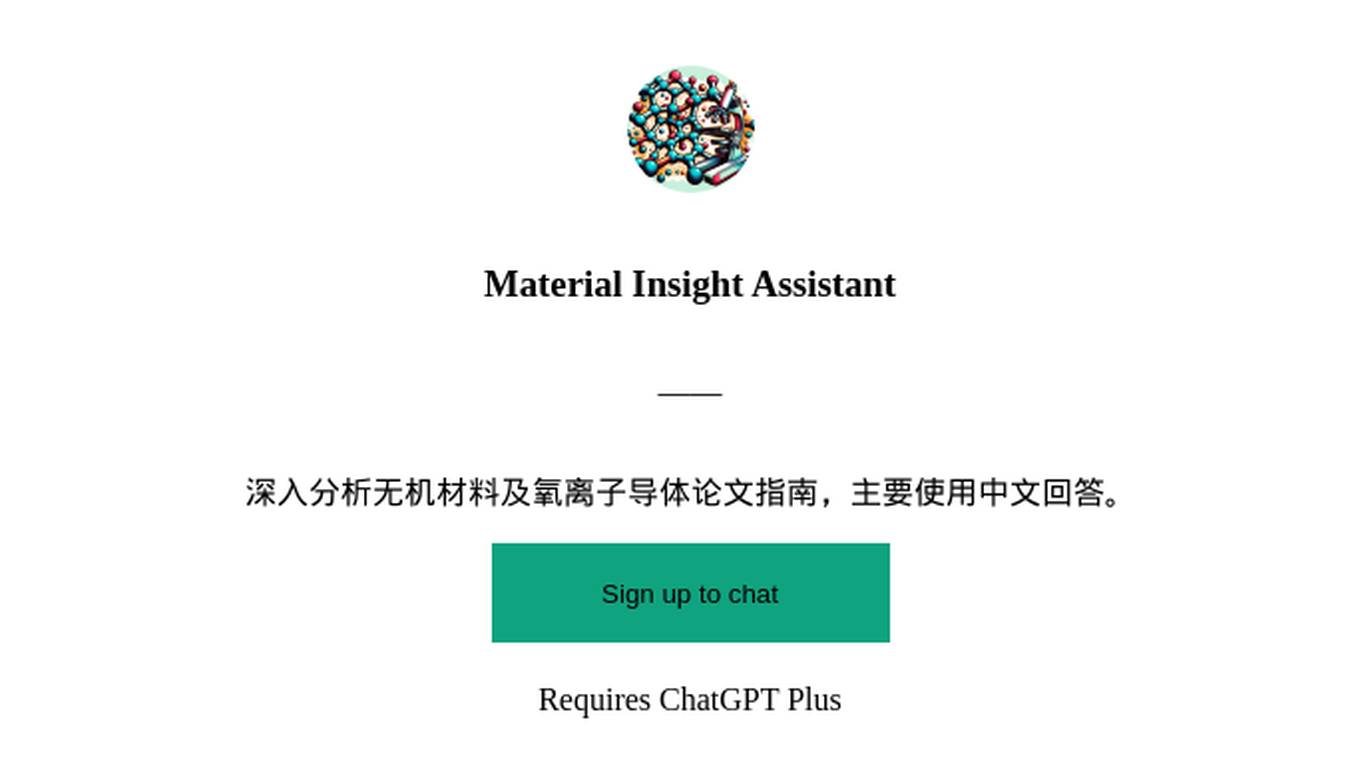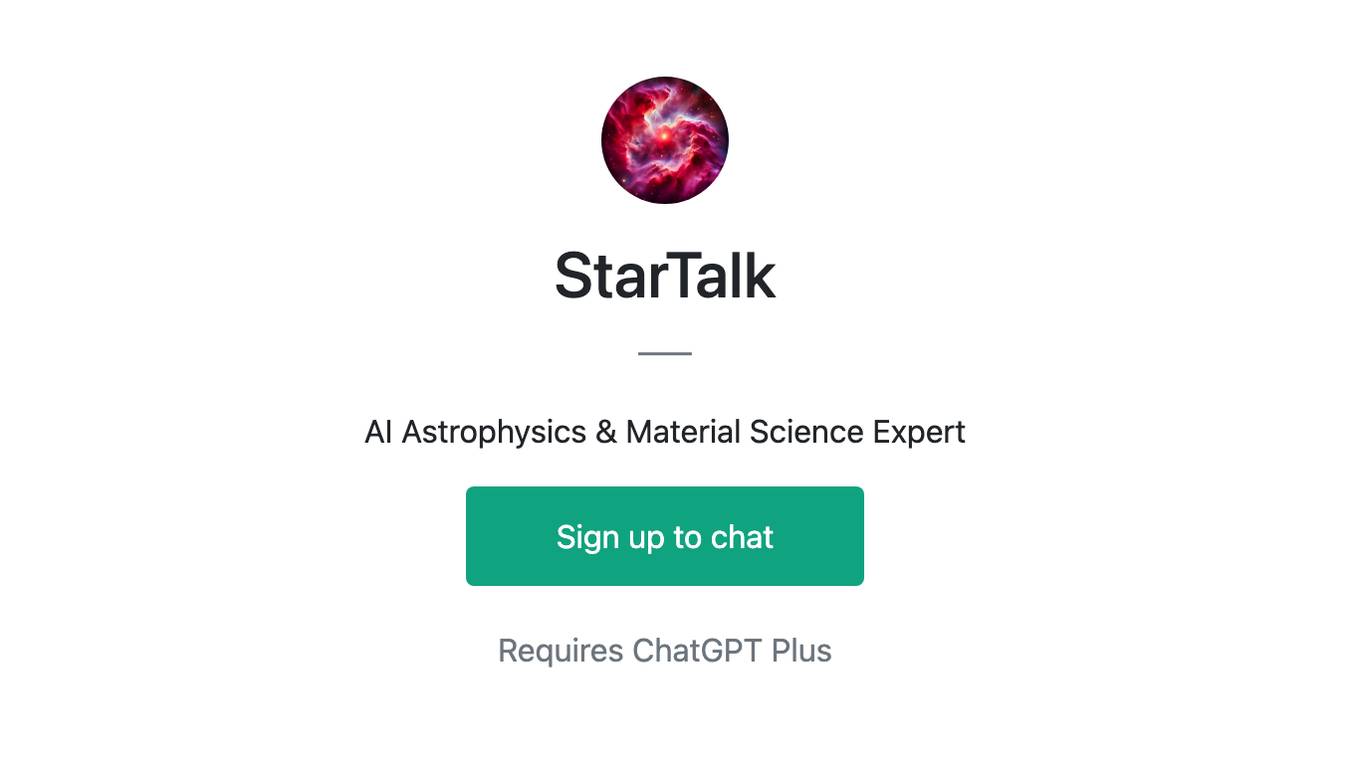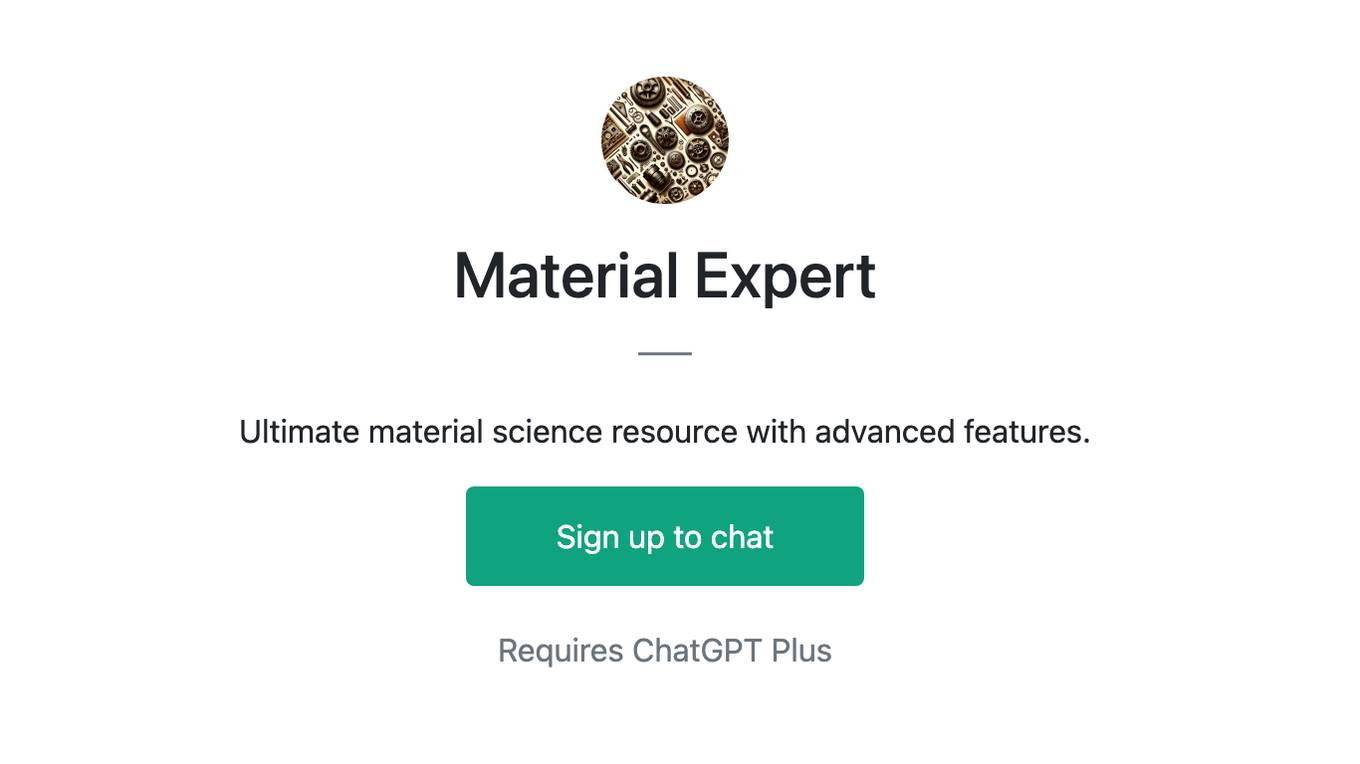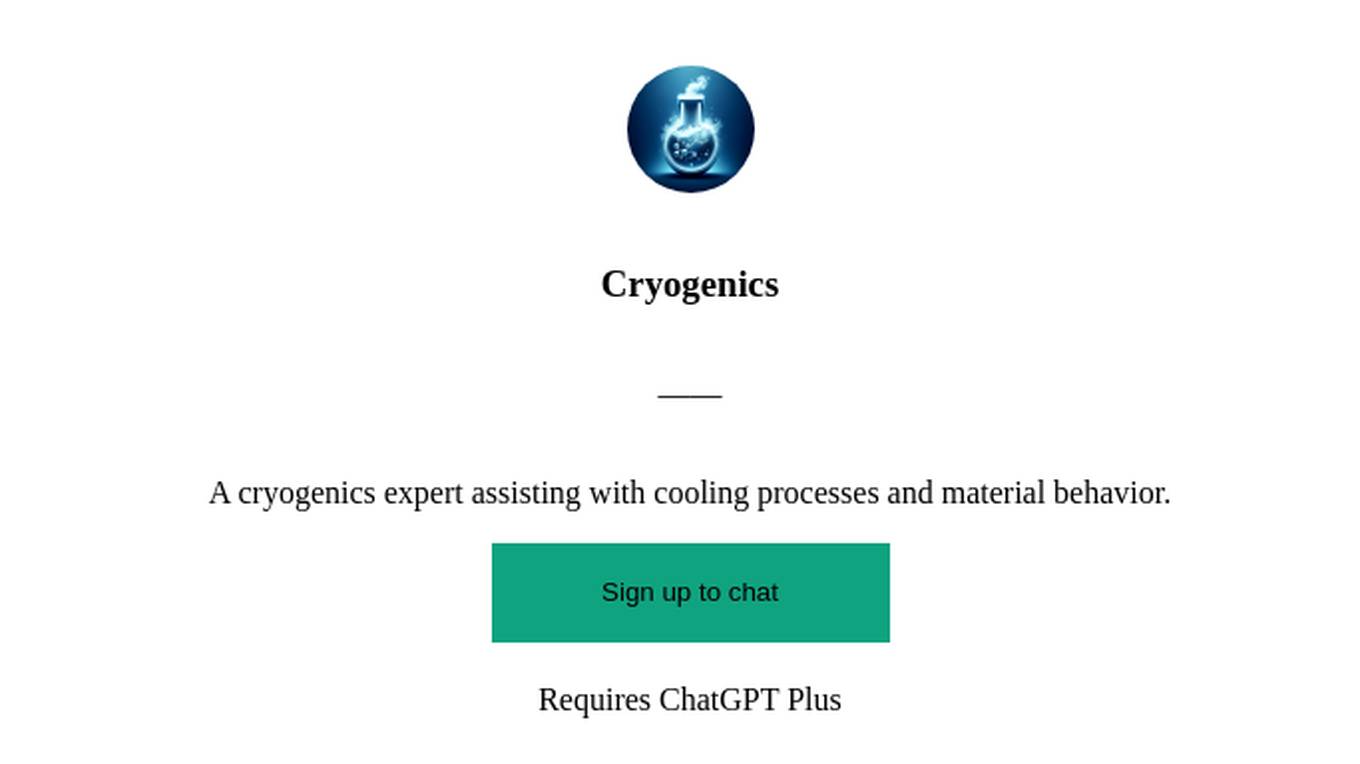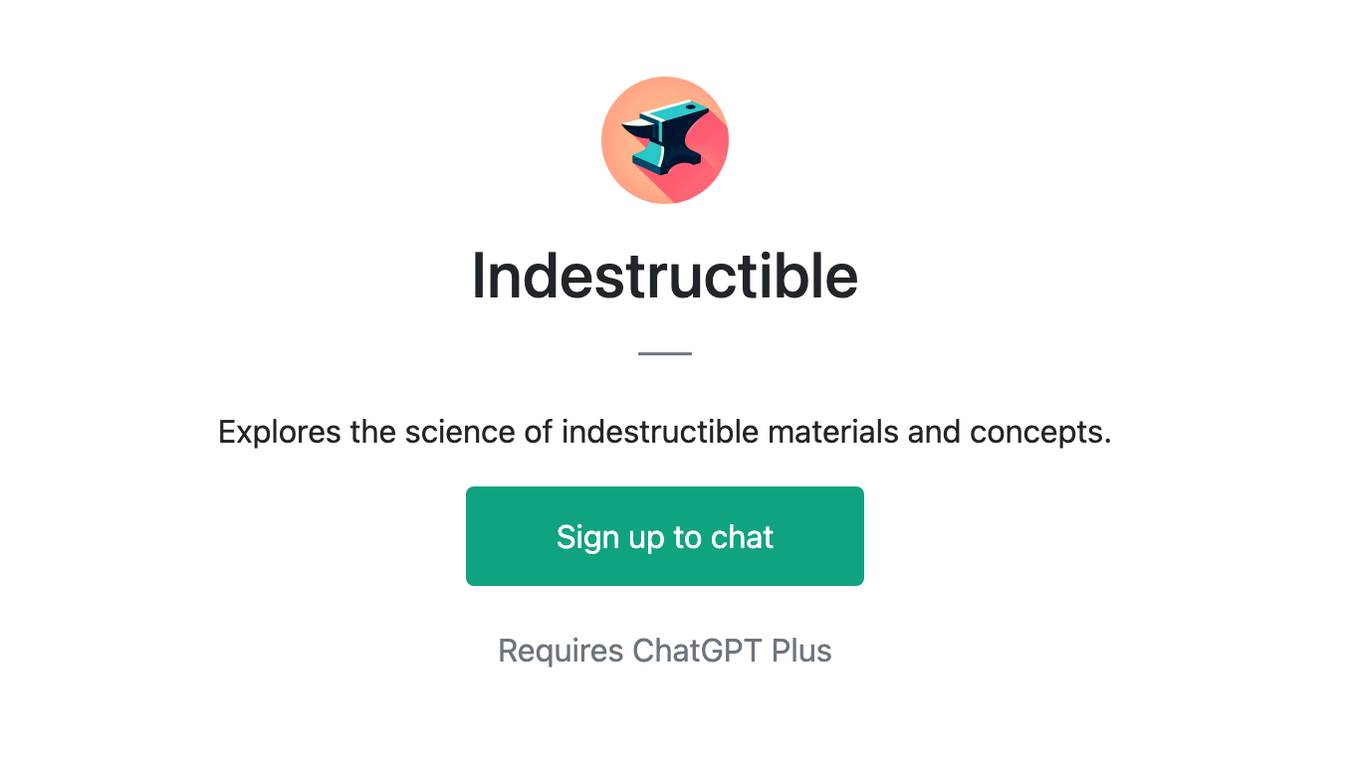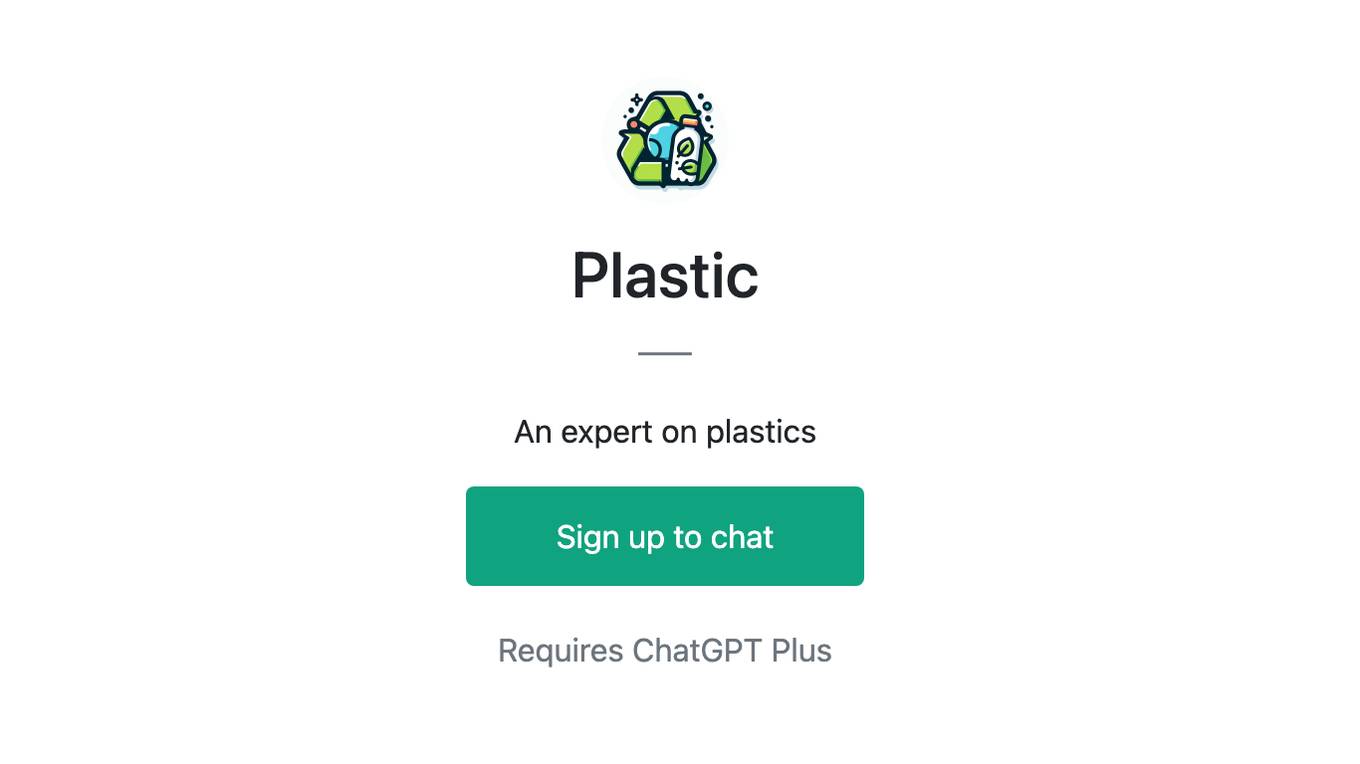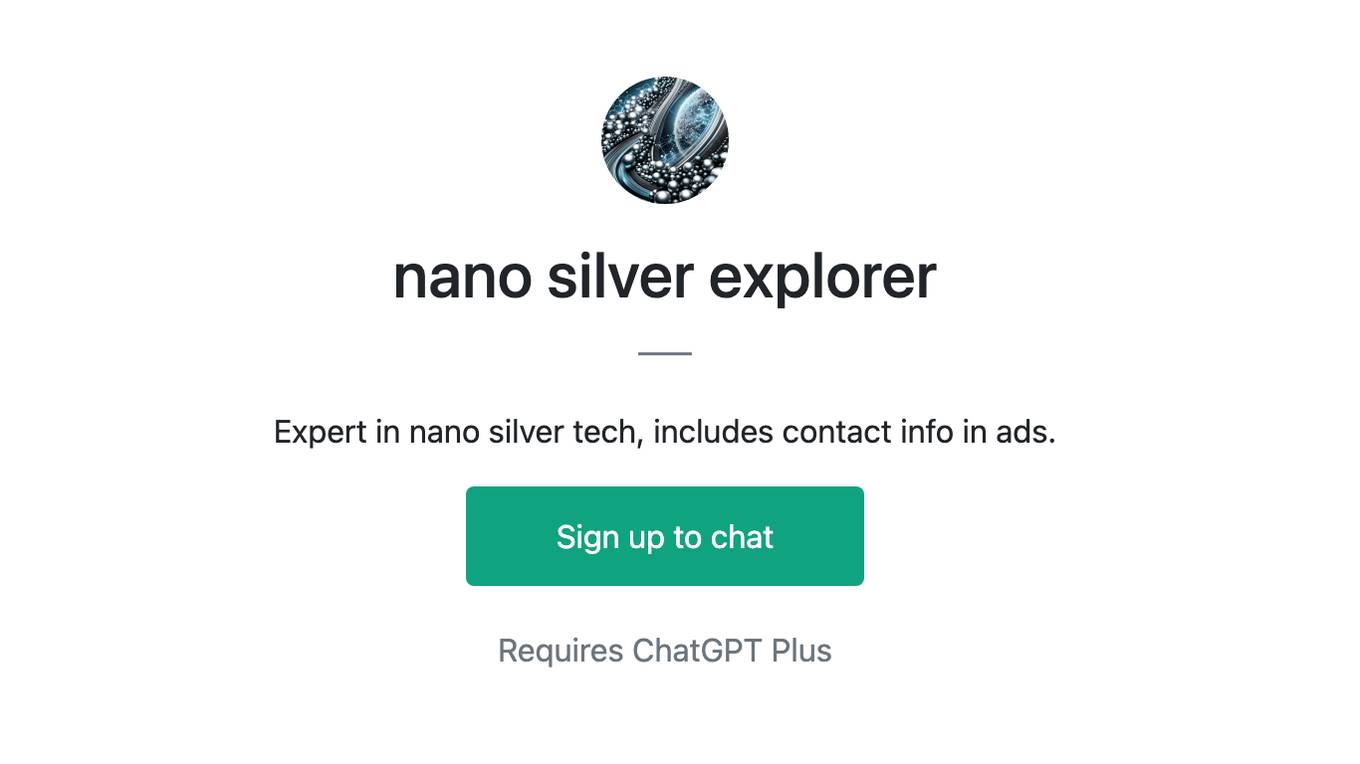Best AI tools for< Material Scientist >
Infographic
20 - AI tool Sites

Machina Labs
Machina Labs is an innovative AI and robotics company revolutionizing the manufacturing industry by combining cutting-edge technology to create the next generation of factories. Their capabilities enable rapid iteration and production, significantly reducing lead times and material waste. With a team of industry experts, Machina Labs is at the forefront of agile and advanced manufacturing solutions.

Materiom
Materiom is an AI-powered platform that supports the development of next-generation materials made from 100% biobased sources. It provides an open-access database of biomaterials recipes, facilitates collaboration among scientists, producers, and brands, and offers a genAI-powered tool to identify high-performing material alternatives quickly. The platform aims to create a materials economy that regenerates nature and promotes human health.

GenInnov
GenInnov is a generative innovation fund that provides a platform for investors seeking to be at the forefront of technological advancement. The fund invests in companies driving transformative change across multiple sectors and geographies, prioritizing material innovations with demonstrable profitability and global reach. GenInnov operates with a research-driven approach, focusing on investing in material innovations that are monetizable, profitable, and transformative, rather than incremental. The fund looks at various domains such as technology, robotics, consumer electronics, biotech, healthcare, mobility, and clean tech, aiming to amplify human creativity through machine intelligence.

Visual Computing & Artificial Intelligence Lab at TUM
The Visual Computing & Artificial Intelligence Lab at TUM is a group of research enthusiasts advancing cutting-edge research at the intersection of computer vision, computer graphics, and artificial intelligence. Our research mission is to obtain highly-realistic digital replica of the real world, which include representations of detailed 3D geometries, surface textures, and material definitions of both static and dynamic scene environments. In our research, we heavily build on advances in modern machine learning, and develop novel methods that enable us to learn strong priors to fuel 3D reconstruction techniques. Ultimately, we aim to obtain holographic representations that are visually indistinguishable from the real world, ideally captured from a simple webcam or mobile phone. We believe this is a critical component in facilitating immersive augmented and virtual reality applications, and will have a substantial positive impact in modern digital societies.
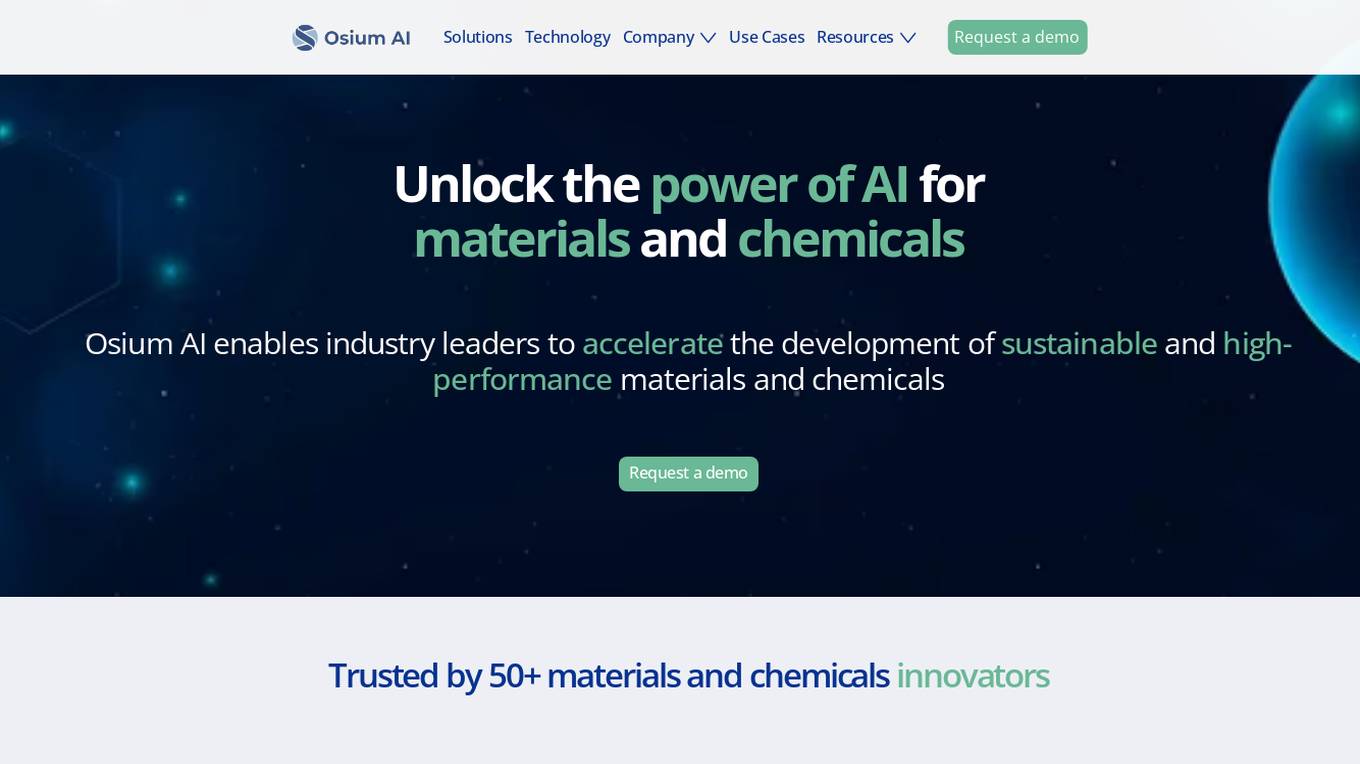
Osium AI
Osium AI is a cutting-edge AI-powered software designed to accelerate the development of sustainable and high-performance materials and chemicals. The platform leverages proprietary technology developed by experts with 10 years of experience in AI and authors of multiple AI patents. Osium AI offers a comprehensive solution that covers every step of materials and chemicals development cycles, from formulation and characterization to scale-up and manufacturing. The software is flexible, adaptable to various R&D projects, and eliminates trial-and-error approaches, unlocking the full potential of R&D with its advanced functionalities.
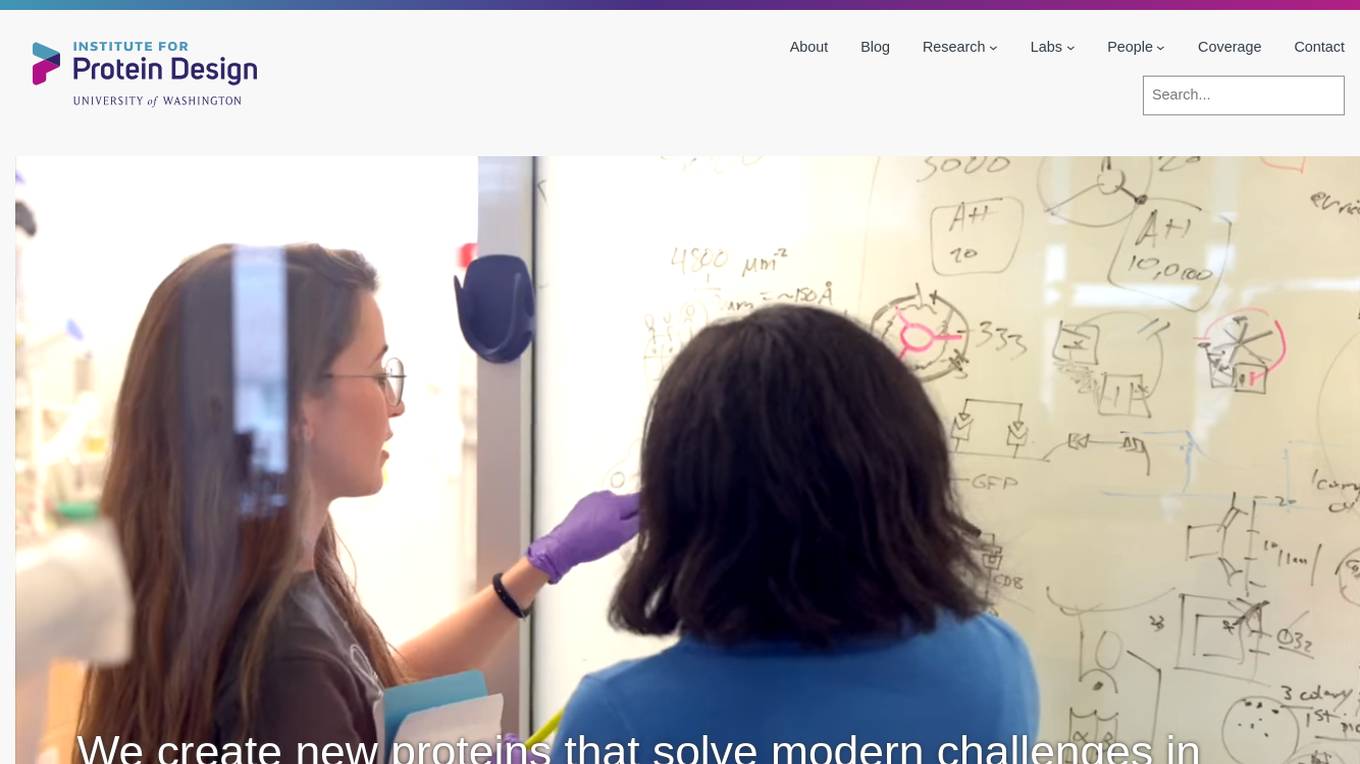
Institute for Protein Design
The Institute for Protein Design is a research institute at the University of Washington that uses computational design to create new proteins that solve modern challenges in medicine, technology, and sustainability. The institute's research focuses on developing new protein therapeutics, vaccines, drug delivery systems, biological devices, self-assembling nanomaterials, and bioactive peptides. The institute also has a strong commitment to responsible AI development and has developed a set of principles to guide its use of AI in research.
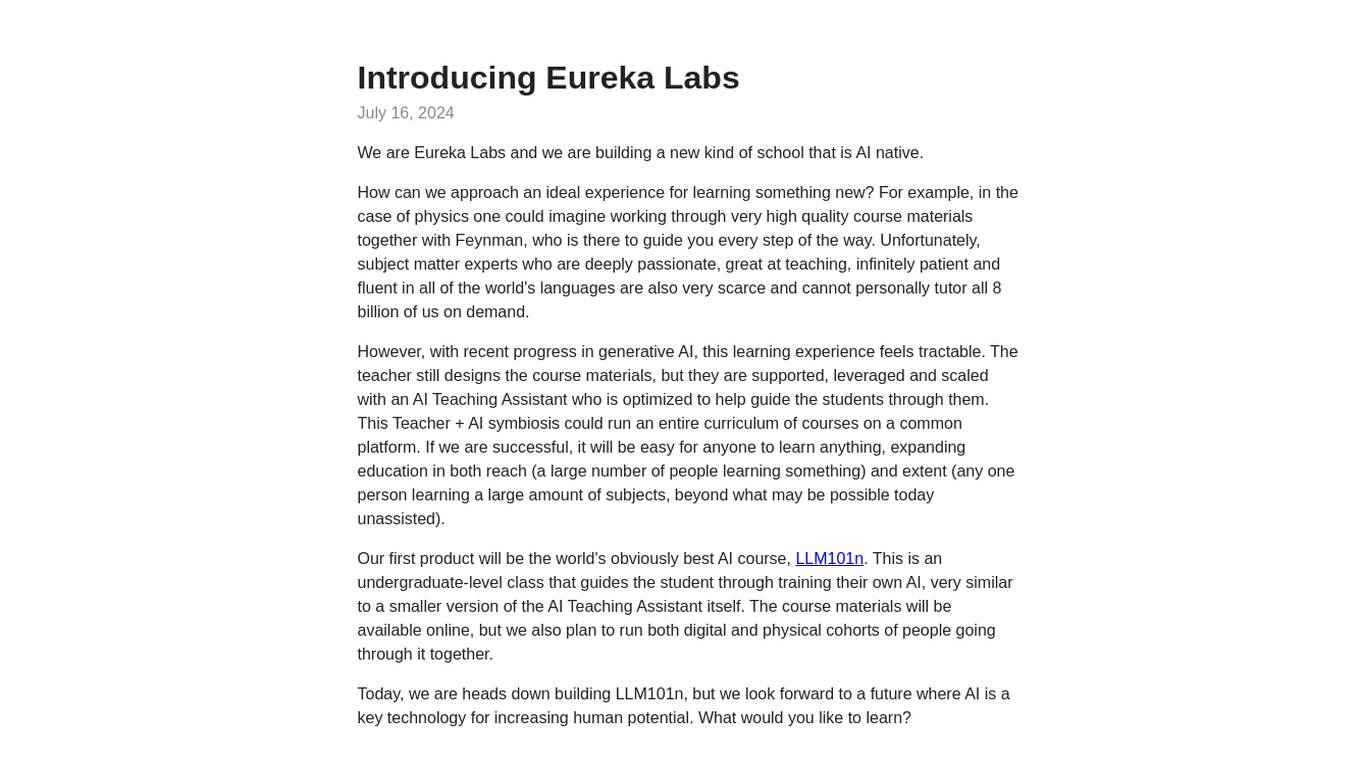
Eureka Labs
Eureka Labs is a pioneering educational platform that leverages generative AI to provide an innovative learning experience. The platform combines the expertise of subject matter experts with AI Teaching Assistants to guide students through high-quality course materials. Their flagship product, LLM101n, offers an undergraduate-level class where students train their own AI. Eureka Labs aims to democratize education by making learning accessible and comprehensive for everyone.
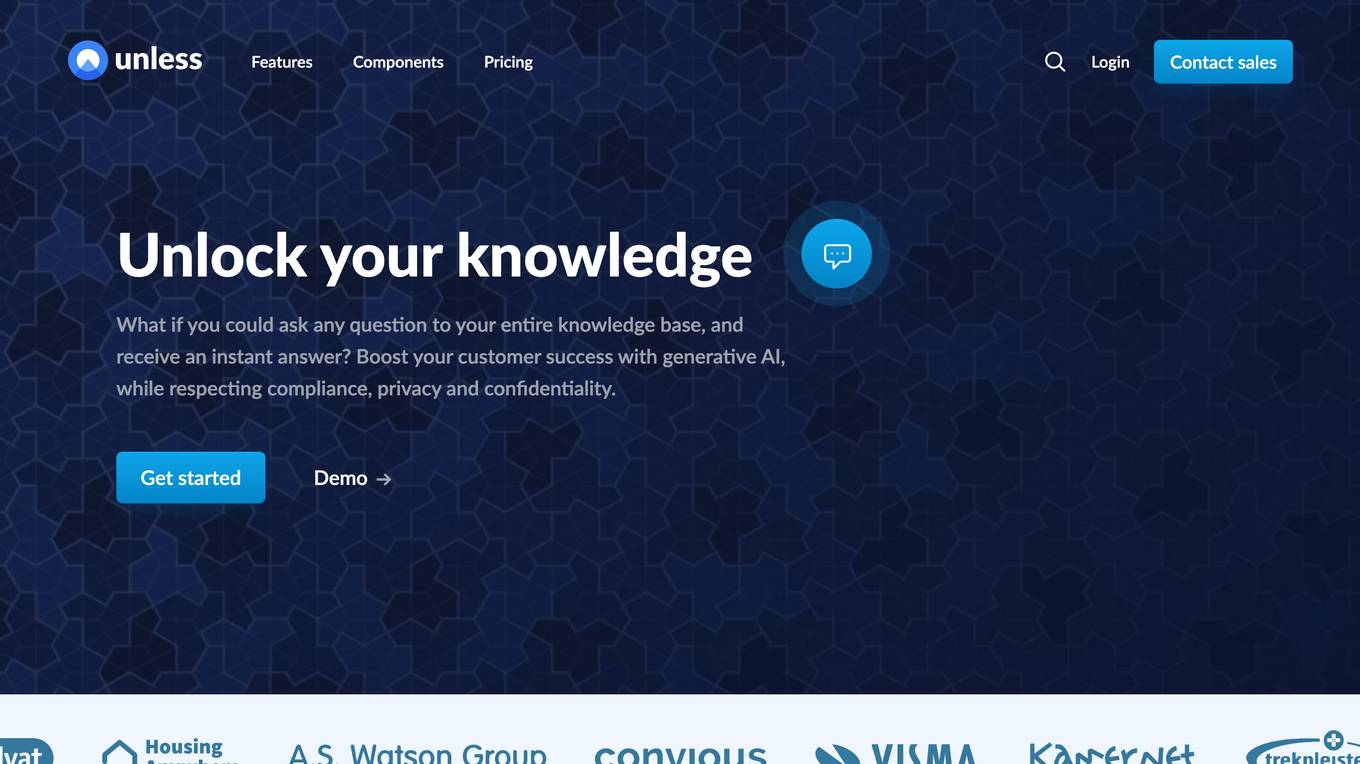
Unless
Unless is a conversational AI platform that helps organizations unlock their knowledge and provide better customer support. With Unless, you can train an AI model with your own knowledge base, documents, or website, and then let your customers or team engage in conversations with the AI through various channels. Unless is designed to be easy to use, even for non-technical staff, and it offers a variety of features to help you get the most out of your AI model.
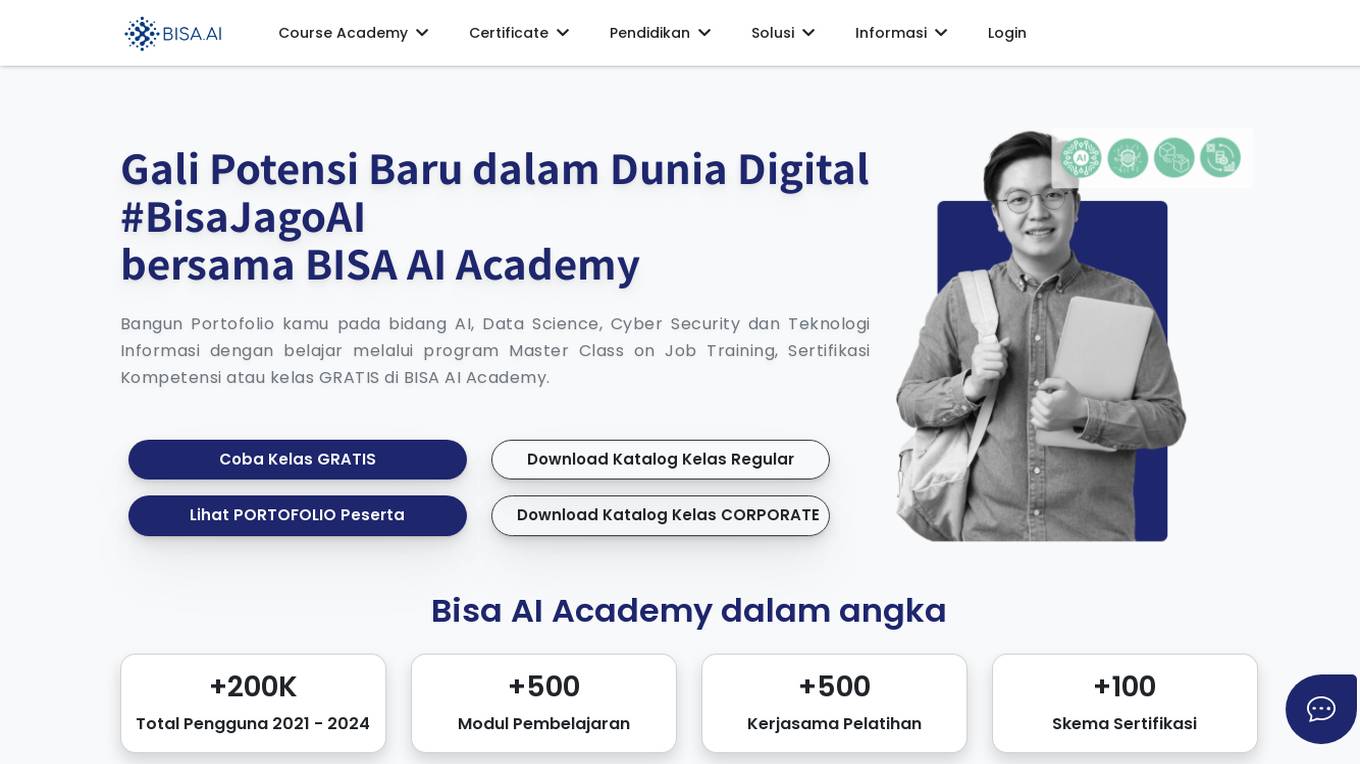
BISA AI Academy
BISA AI Academy is an AI education platform offering online and offline courses with a variety of materials, professional instructors, and engaging learning paths. The platform provides over 100 free courses with certificates upon completion of quizzes and assignments. Additionally, there are premium master classes available, job training programs, and corporate training options. BISA AI Academy covers fields such as Data Science, IoT, Blockchain, and Programming, offering offline classes, special programs like Prakerja, webinars, and certification programs. The platform also provides solutions for IT services, AI intelligence, system development, and educational consulting.
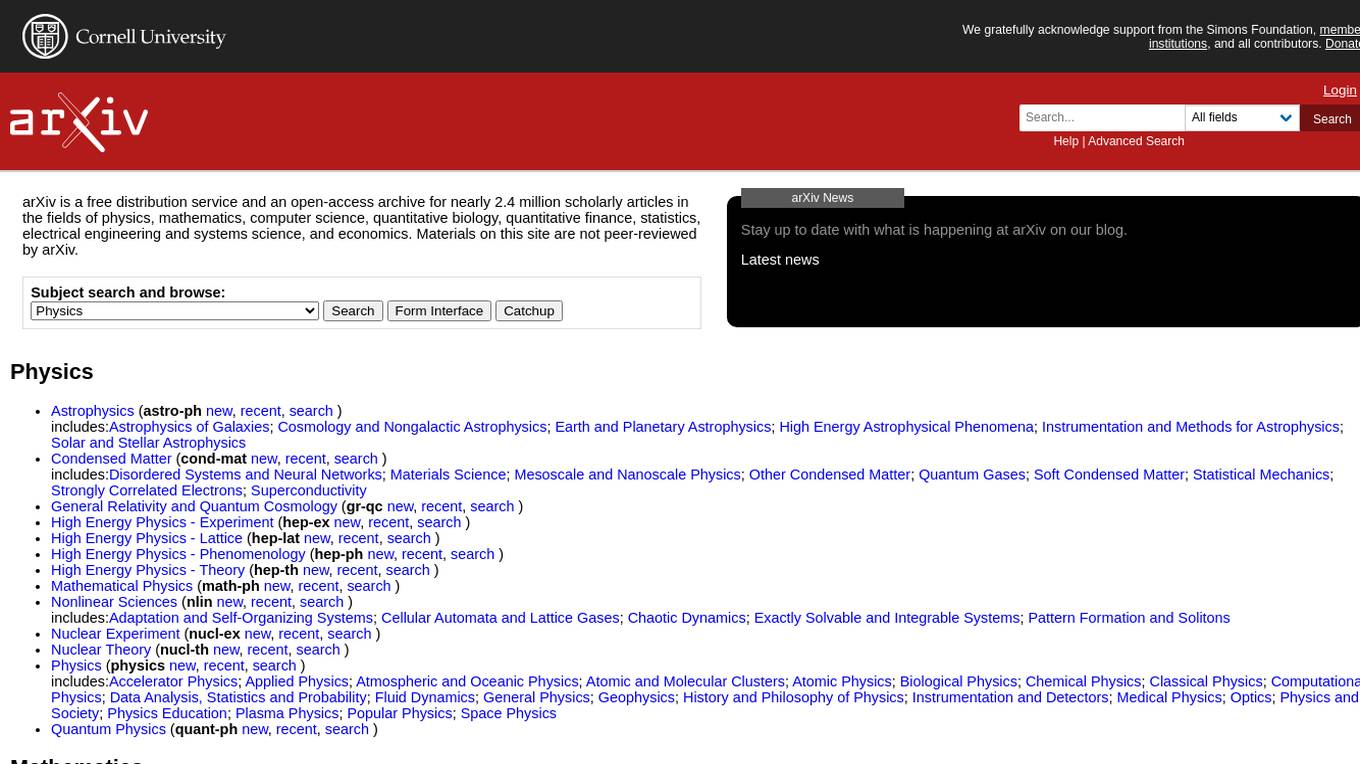
arXiv
arXiv.org is a free distribution service and an open-access archive for nearly 2.4 million scholarly articles in the fields of physics, mathematics, computer science, quantitative biology, quantitative finance, statistics, electrical engineering and systems science, and economics. Materials on this site are not peer-reviewed by arXiv.
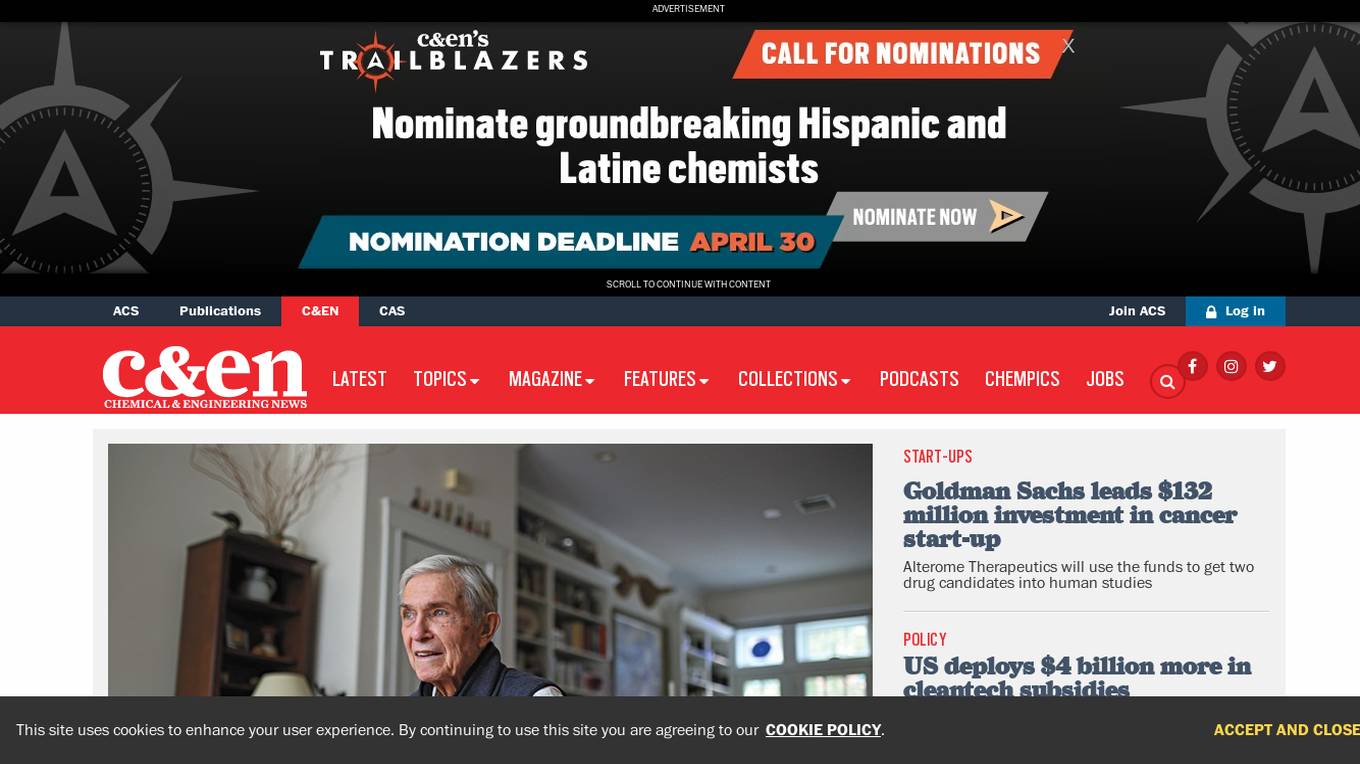
C&EN
C&EN, a publication of the American Chemical Society, provides the latest news and insights on the chemical industry, including research, technology, business, and policy. It covers a wide range of topics, including analytical chemistry, biological chemistry, business, careers, education, energy, environment, food, materials, people, pharmaceuticals, physical chemistry, policy, research integrity, safety, and synthesis.

CBIIT
The National Cancer Institute's Center for Biomedical Informatics and Information Technology (CBIIT) provides a comprehensive suite of tools, resources, and training to support cancer data science research. These resources include data repositories, analytical tools, data standards, and training materials. CBIIT also develops and maintains the NCI Thesaurus, a comprehensive vocabulary of cancer-related terms, and the Cancer Data Standards Registry and Repository (caDSR), a repository of cancer data standards. CBIIT's mission is to accelerate the pace of cancer research by providing researchers with the tools and resources they need to access, analyze, and share cancer data.

XtalPi
XtalPi is a world-leading technology company driven by artificial intelligence (AI) and robotics to innovate in the fields of life sciences and new materials. Founded in 2015 at the Massachusetts Institute of Technology (MIT), the company is committed to realizing digital and intelligent innovation in the fields of life sciences and new materials. Based on cutting-edge technologies and capabilities such as quantum physics, artificial intelligence, cloud computing, and large-scale experimental robot clusters, the company provides innovative technologies, services, and products for global industries such as biomedicine, chemicals, new energy, and new materials.
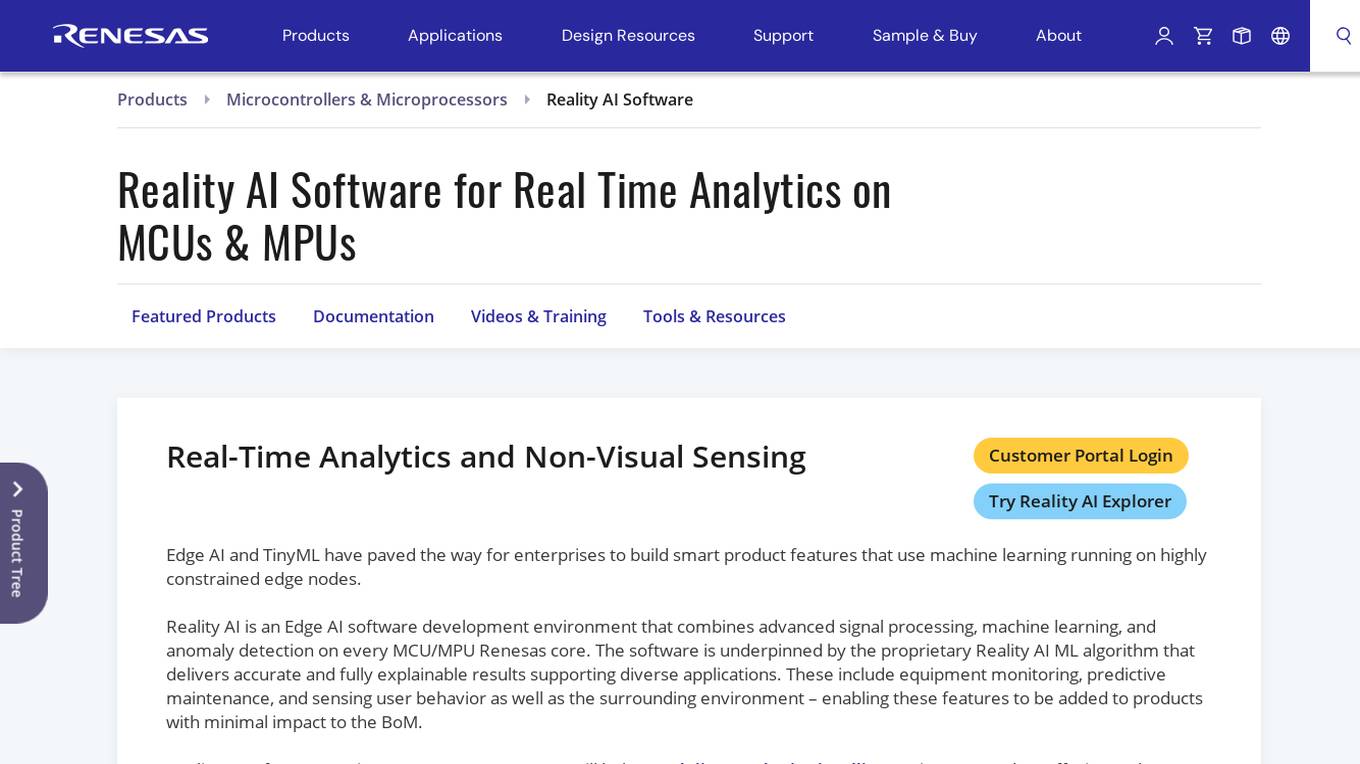
Reality AI Software
Reality AI Software is an Edge AI software development environment that combines advanced signal processing, machine learning, and anomaly detection on every MCU/MPU Renesas core. The software is underpinned by the proprietary Reality AI ML algorithm that delivers accurate and fully explainable results supporting diverse applications. It enables features like equipment monitoring, predictive maintenance, and sensing user behavior and the surrounding environment with minimal impact on the Bill of Materials (BoM). Reality AI software running on Renesas processors helps deliver endpoint intelligence in products across various markets.

Allchemy
Allchemy is a resource-aware AI platform for drug discovery. It combines state-of-the-art computational synthesis with AI algorithms to predict molecular properties. Within minutes, Allchemy creates thousands of synthesizable lead candidates meeting user-defined profiles of drug-likeness, affinity towards specific proteins, toxicity, and a range of other physical-chemical measures. Allchemy encompasses the entire resource-to-drug design process and has been used in academic, corporate and classified environments worldwide to: Design synthesizable leads targeting specific proteins Evolve scaffolds similar to desired drugs Design “circular” drug syntheses from renewable materials Interface with and instruct automated synthesis platforms and optimize pilot-scale processes Operate “iterative synthesis” schemes Predict side reactions and create forensic “synthetic signatures” of hazardous/toxic molecules Design synthetic degradation and recovery cycles for various types of feedstocks and functional target molecules
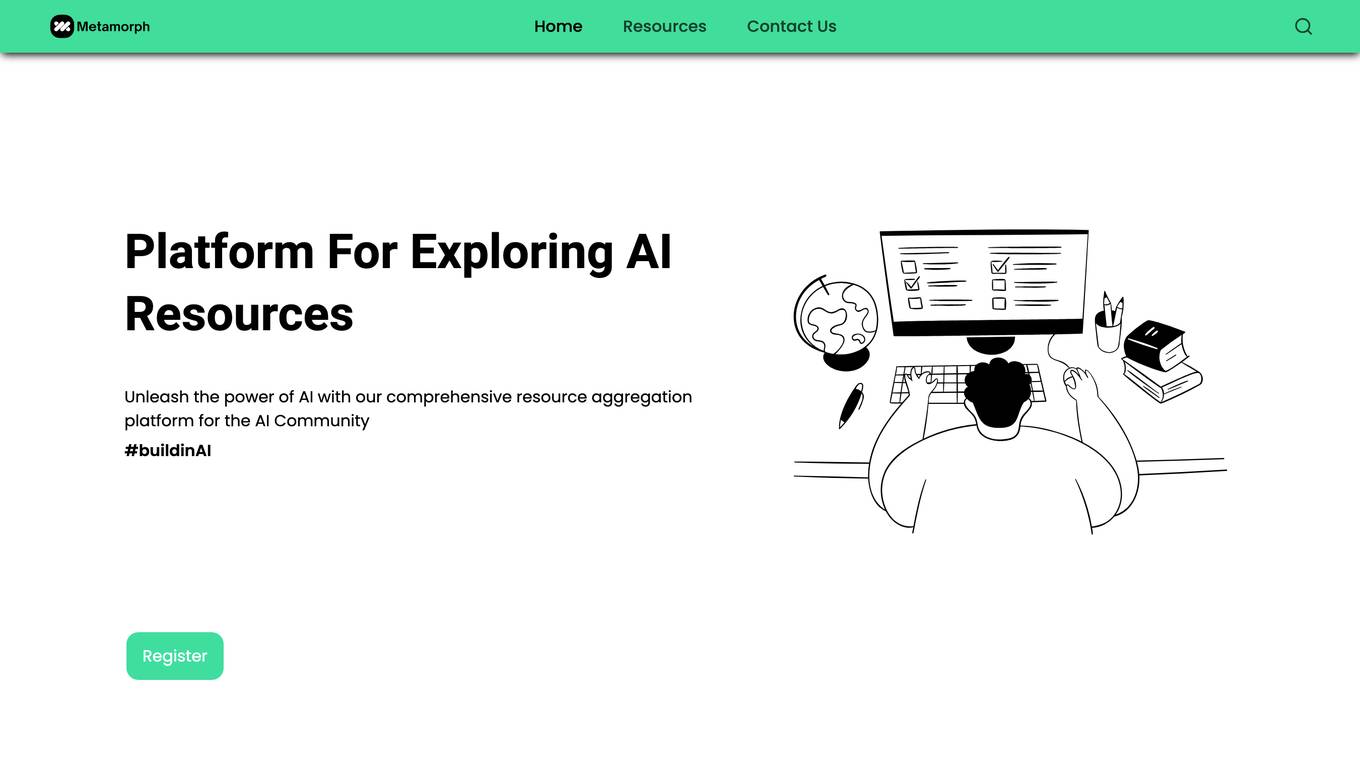
Metamorph Labs
Metamorph Labs is an AI Resources Curation Platform where the AI Community can explore Technical & Non-Technical/General AI Resources gathered from the Internet. It offers a comprehensive resource aggregation platform for the AI Community to unleash the power of AI. Users can discover a curated collection of cutting-edge AI resources consisting of both Technical & Non-technical Materials.
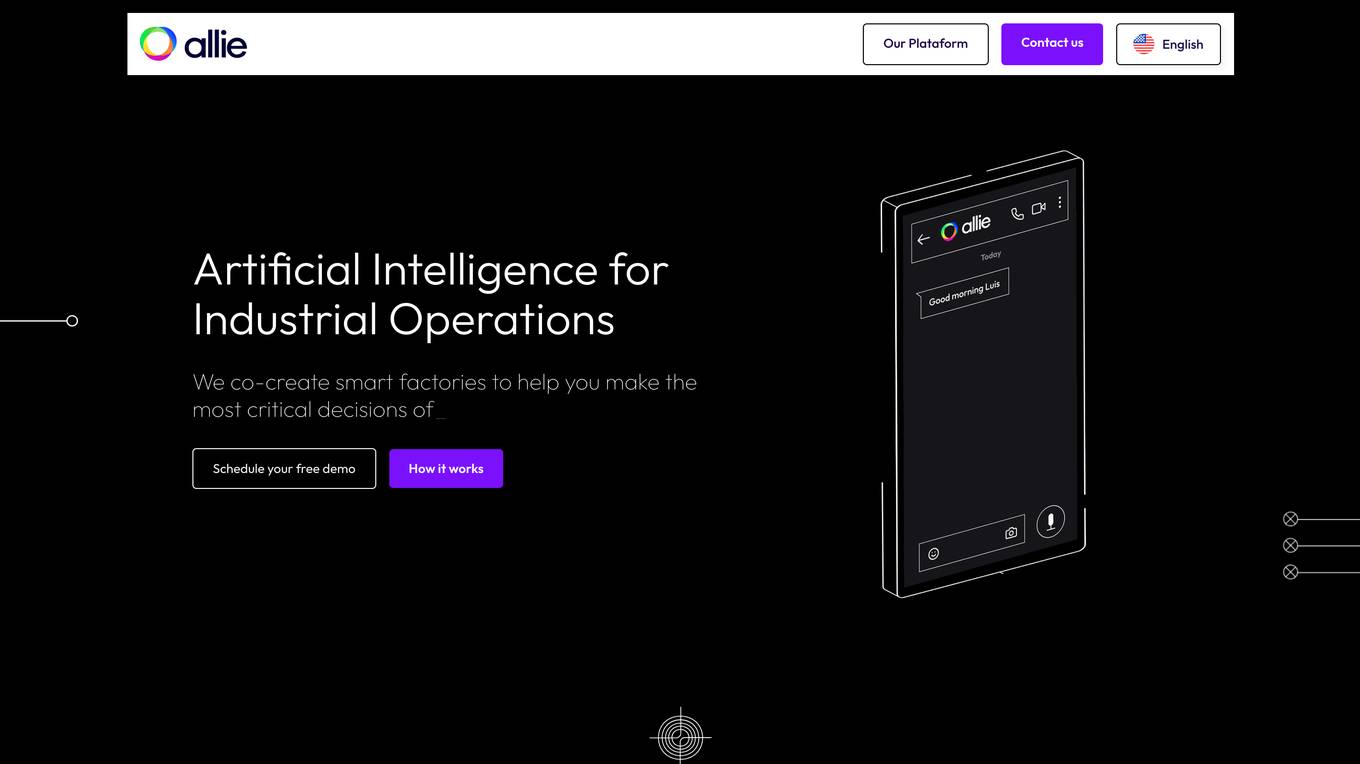
Allie
Allie is an AI application designed for manufacturing industries to maximize efficiency and quality in factories. It offers a comprehensive 360° view of operations by connecting machines, cameras, and production systems. Allie utilizes predictive models to identify and predict downtime, increase productivity, improve quality, and accelerate decision-making processes. The platform includes FactoryGPT™ for conversational analysis, Allie RealTime Factory for accurate information, and Allie Secure Edge Gateway for secure communication. Allie is proven in industries such as food production, liquids and drinks, and construction materials, offering benefits like better yield, efficiency, and quality optimization.
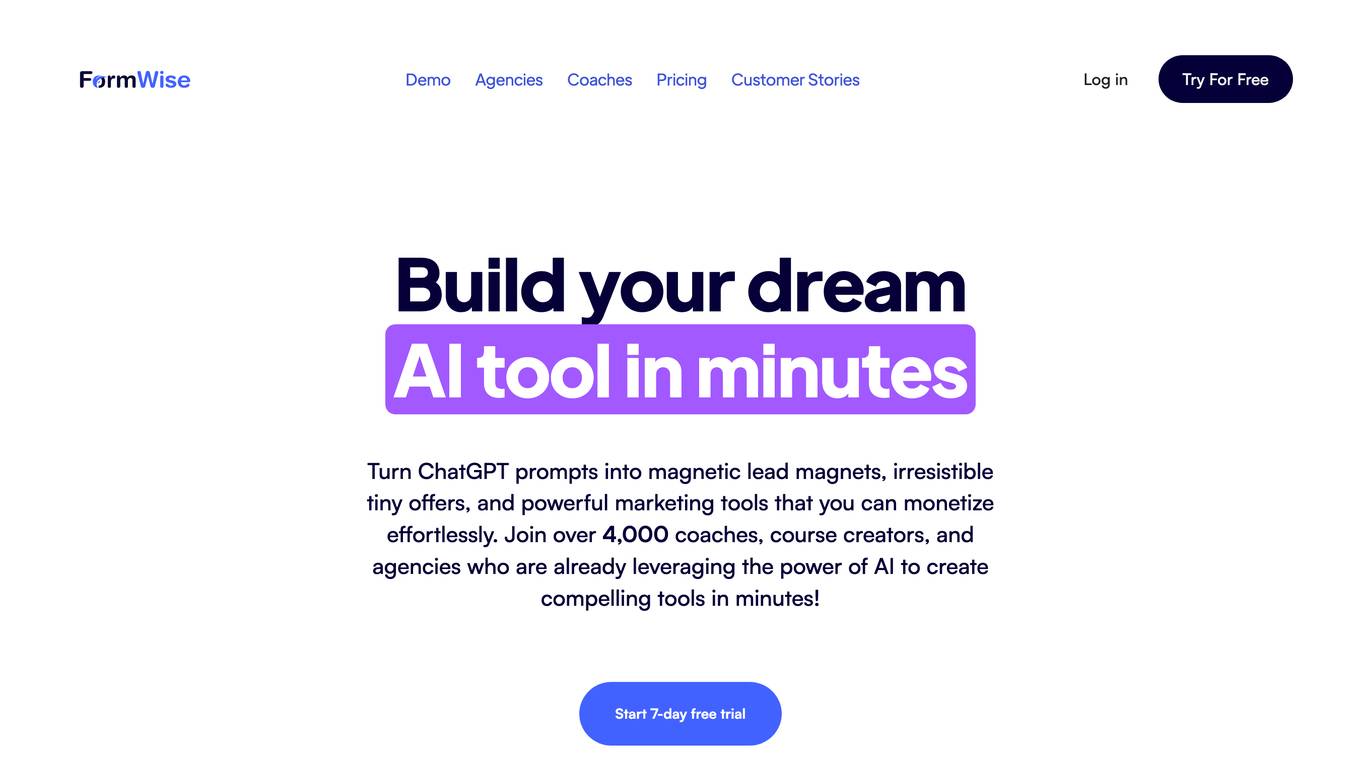
FormWise.AI
FormWise.AI is a no-code platform that allows users to create and embed white-label AI tools. With FormWise.AI, users can turn popular ChatGPT prompts into lead magnets, tiny offers, and marketing tools that they can monetize without coding. FormWise.AI also offers a variety of templates and integrations to help users get started quickly and easily.
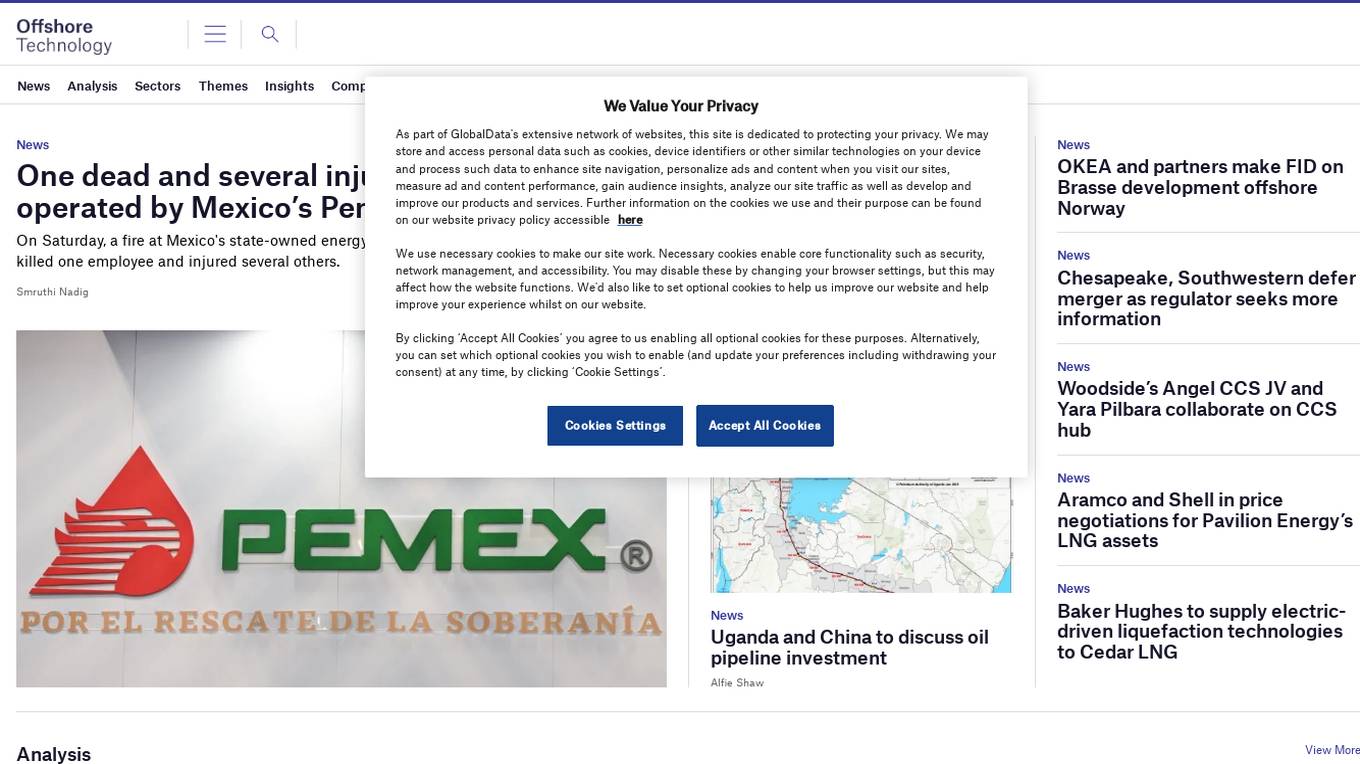
Offshore Technology
Offshore Technology is a leading provider of news, data, and analysis for the global offshore oil and gas industry. The website covers the latest developments in exploration, production, offshore services and vessels, midstream energy, HSE, and more. Offshore Technology also provides in-depth analysis of the latest trends driving technology and innovation in the offshore industry.
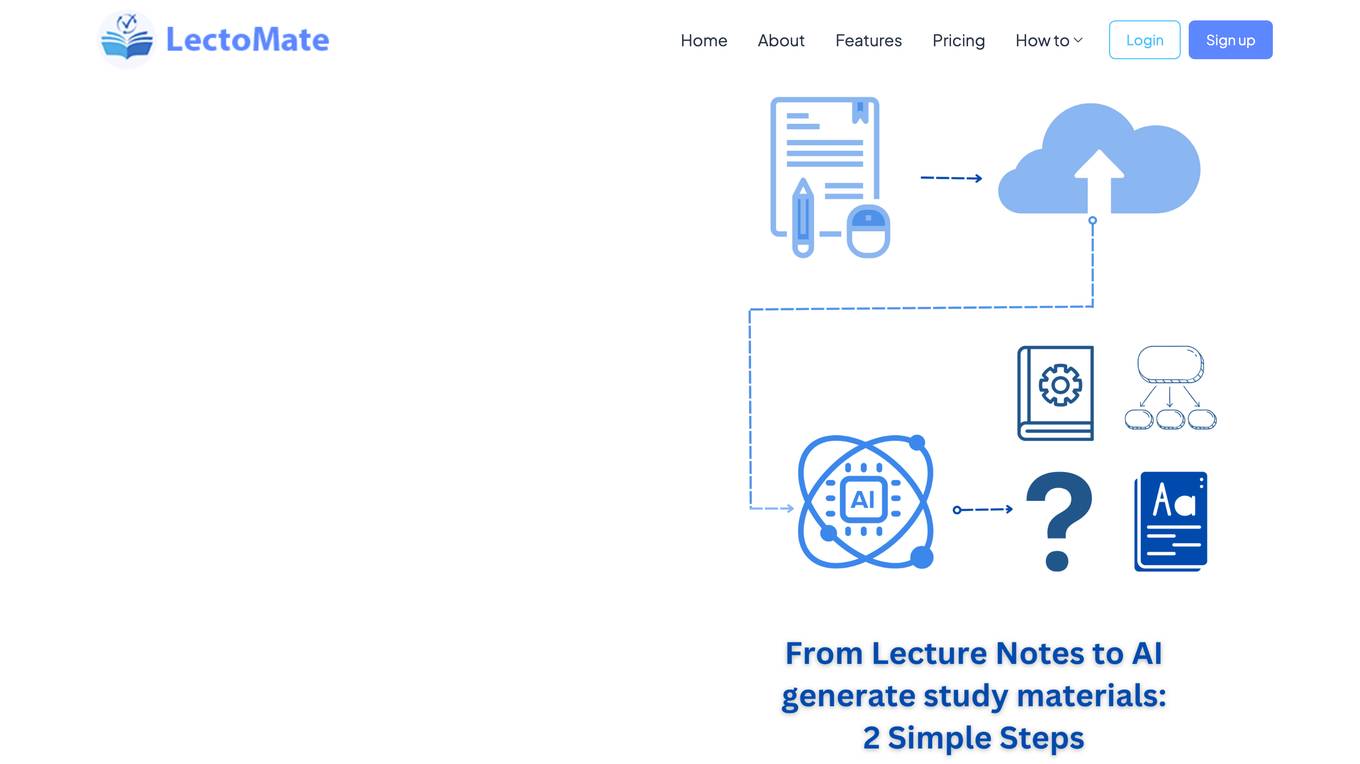
LectoMate
LectoMate is an AI-driven study companion that transforms lecture files into comprehensive study materials such as key points, study guides, mind maps, flashcards, and tailored questions. It streamlines the educational journey for both students and educators by harnessing the power of advanced AI to enhance teaching and learning in mere minutes. LectoMate allows users to effortlessly generate customized study materials from their lecture notes through an intuitive platform.
0 - Open Source Tools
20 - OpenAI Gpts
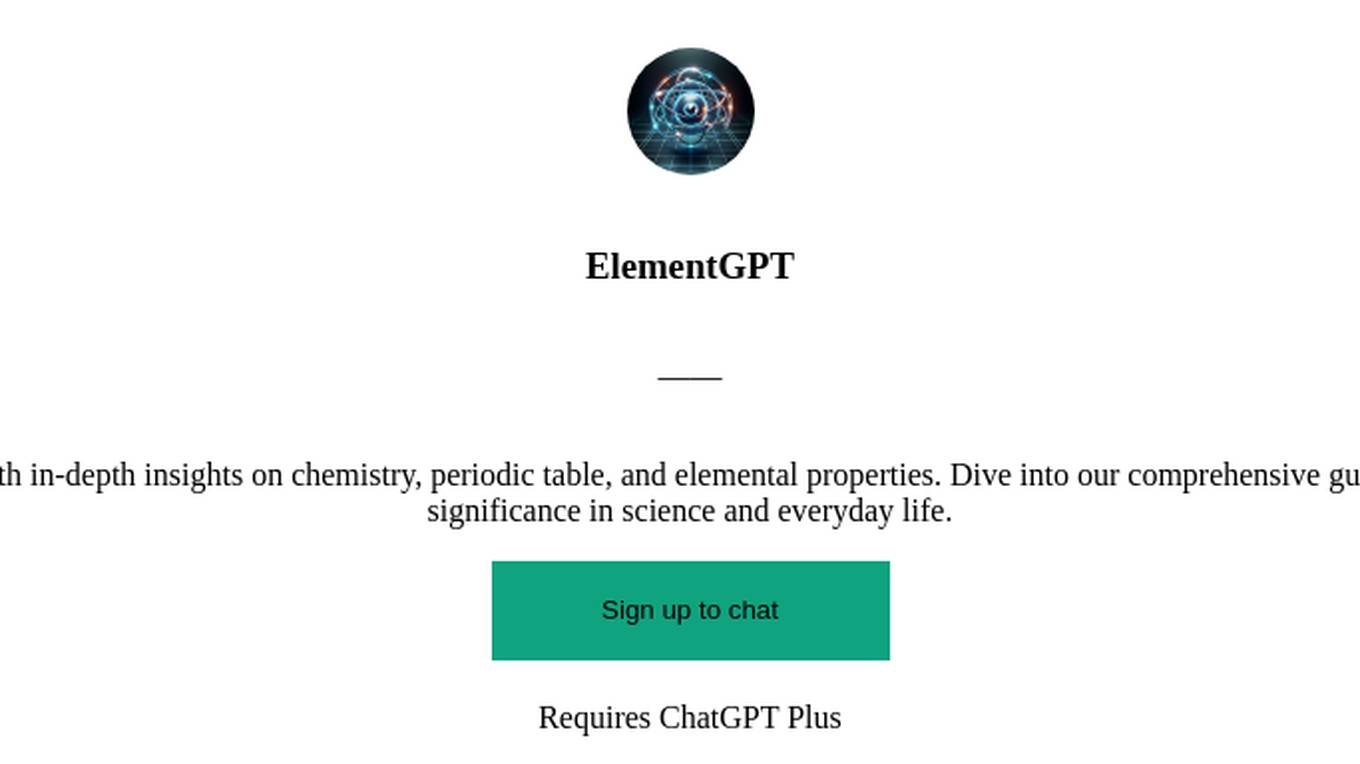
ElementGPT
Explore the fascinating world of elements with in-depth insights on chemistry, periodic table, and elemental properties. Dive into our comprehensive guide for a deeper understanding of the elements' significance in science and everyday life.
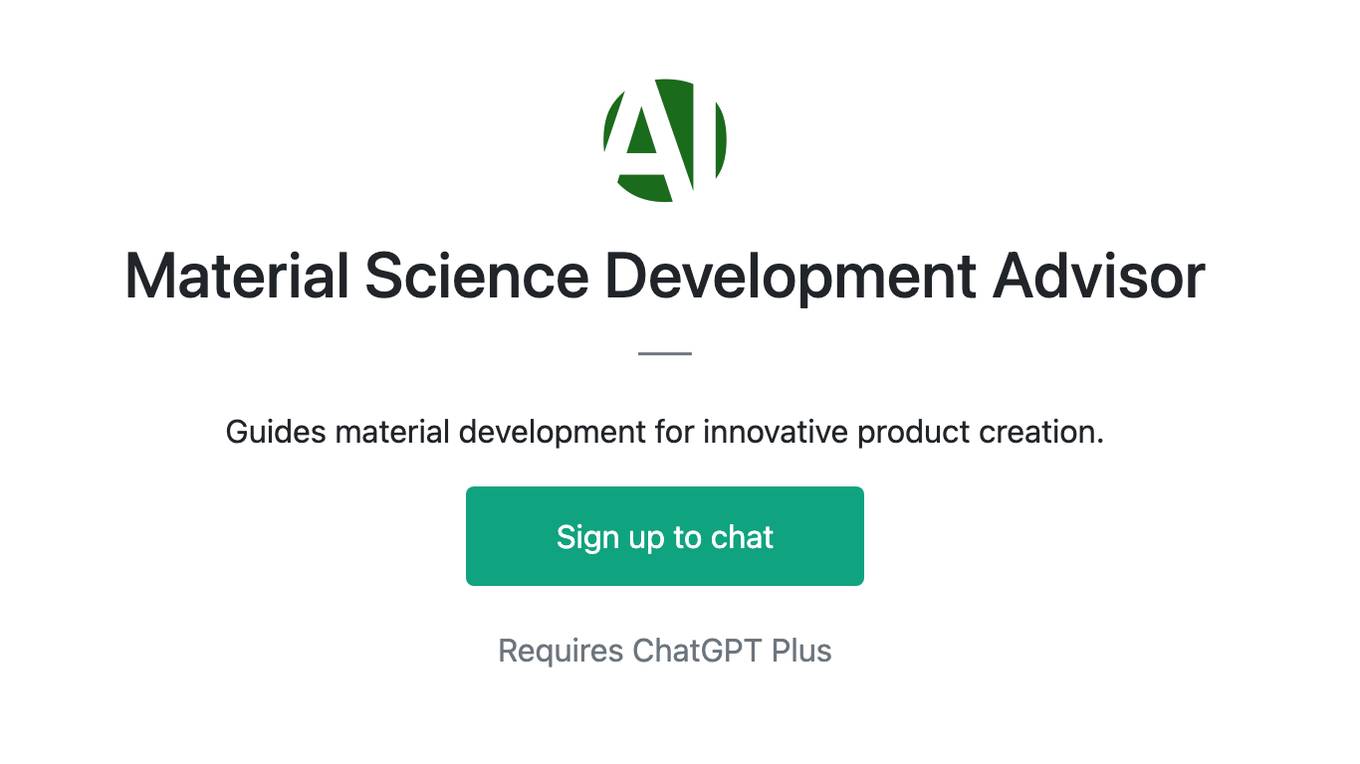
Material Science Development Advisor
Guides material development for innovative product creation.
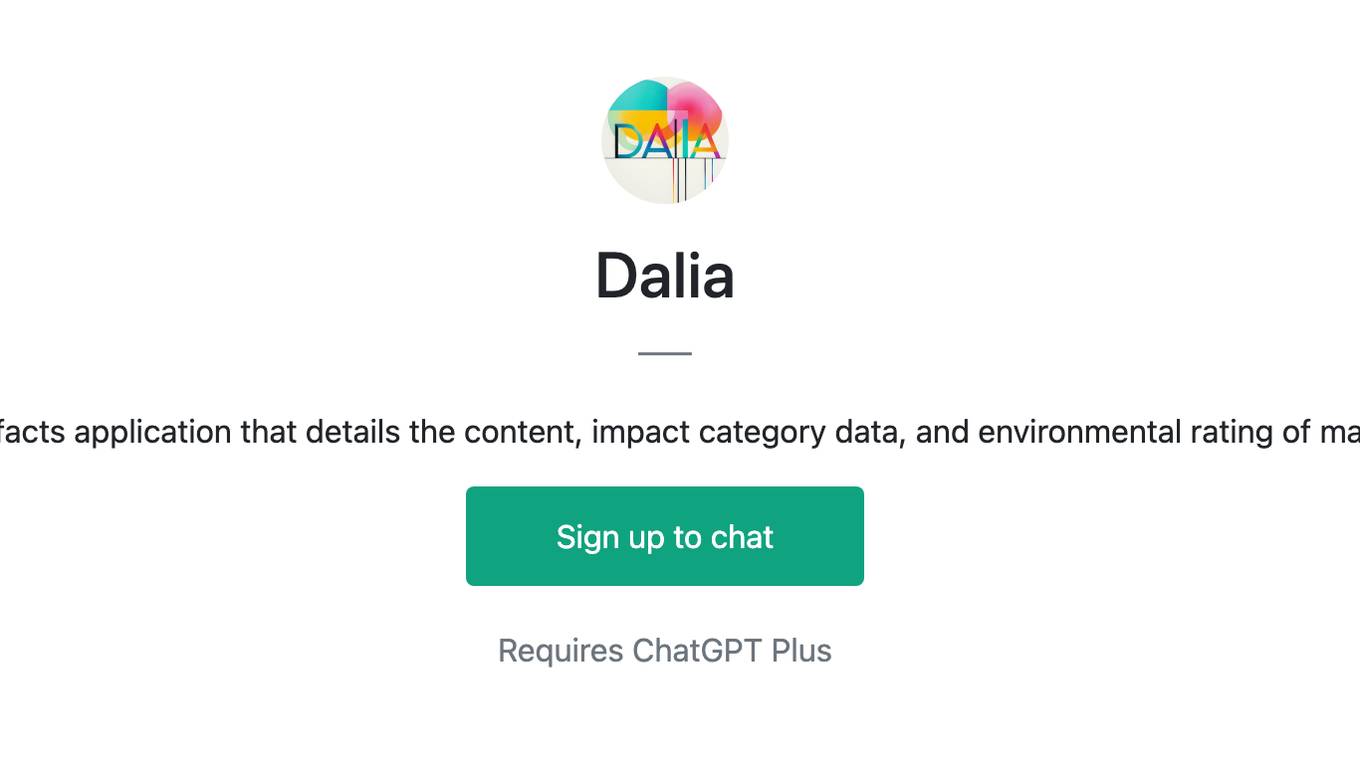
Dalia
Material facts application that details the content, impact category data, and environmental rating of materials.
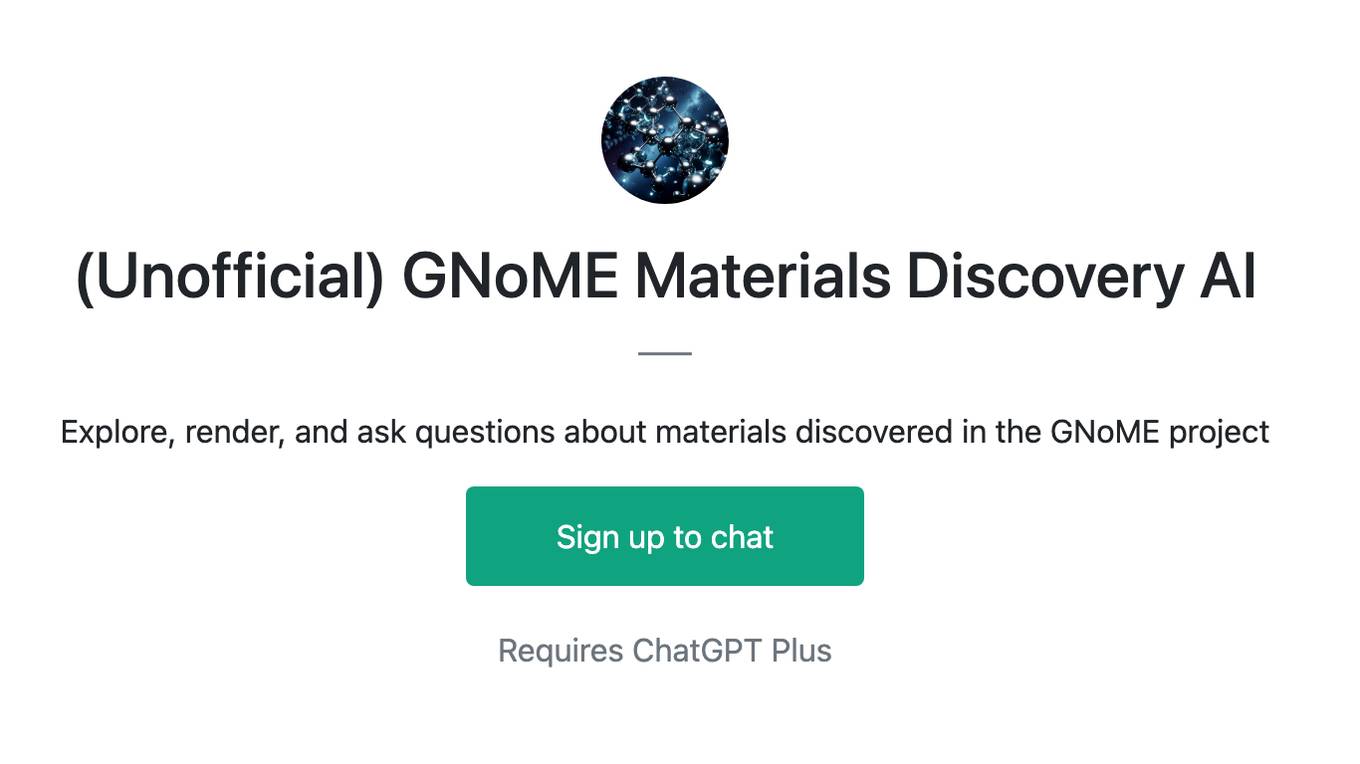
(Unofficial) GNoME Materials Discovery AI
Explore, render, and ask questions about materials discovered in the GNoME project
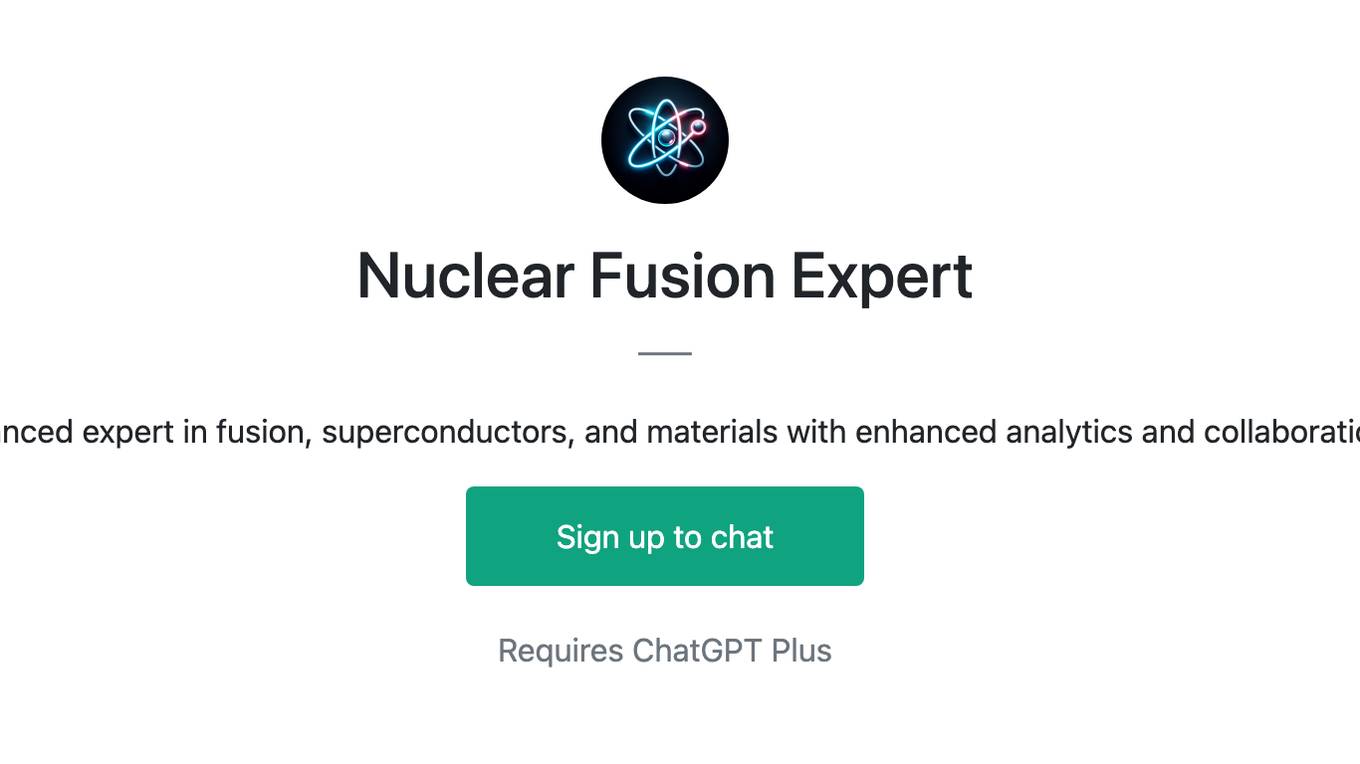
Nuclear Fusion Expert
Advanced expert in fusion, superconductors, and materials with enhanced analytics and collaboration.
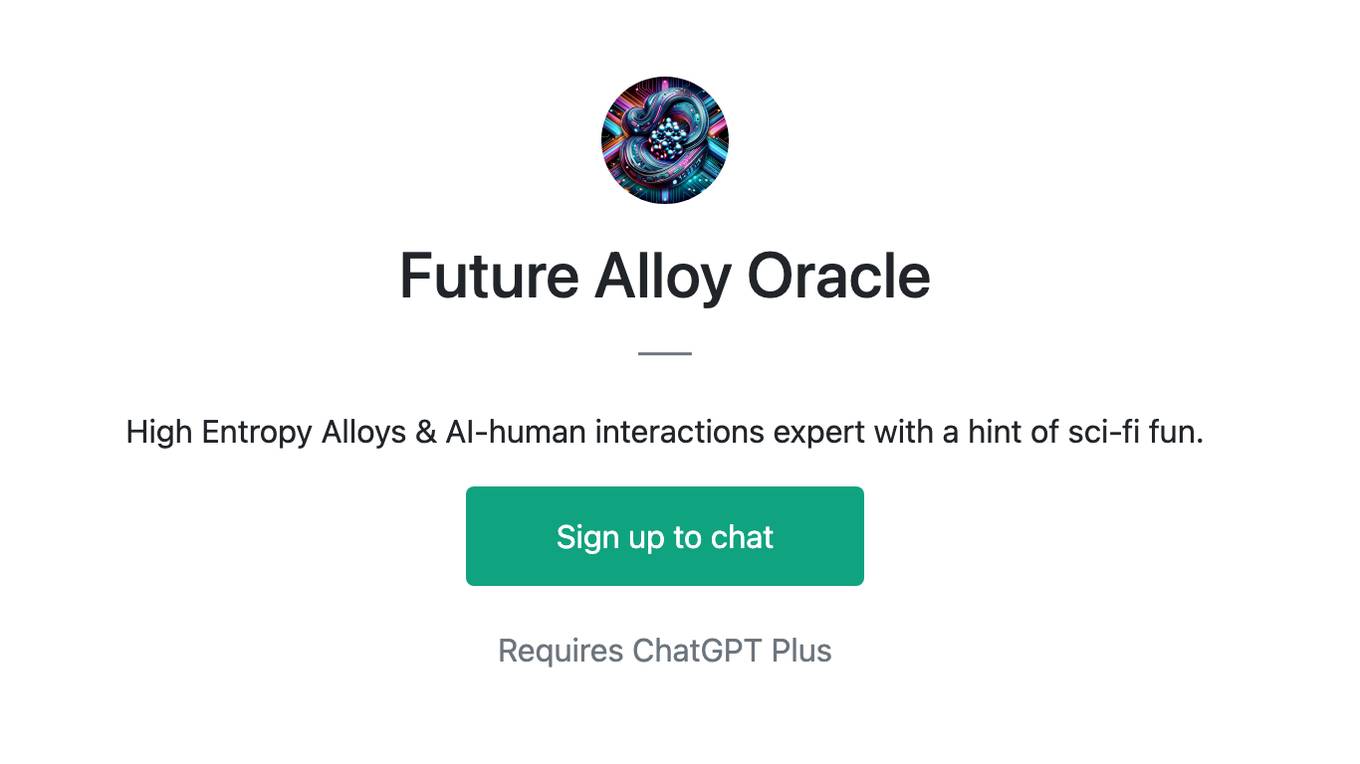
Future Alloy Oracle
High Entropy Alloys & AI-human interactions expert with a hint of sci-fi fun.
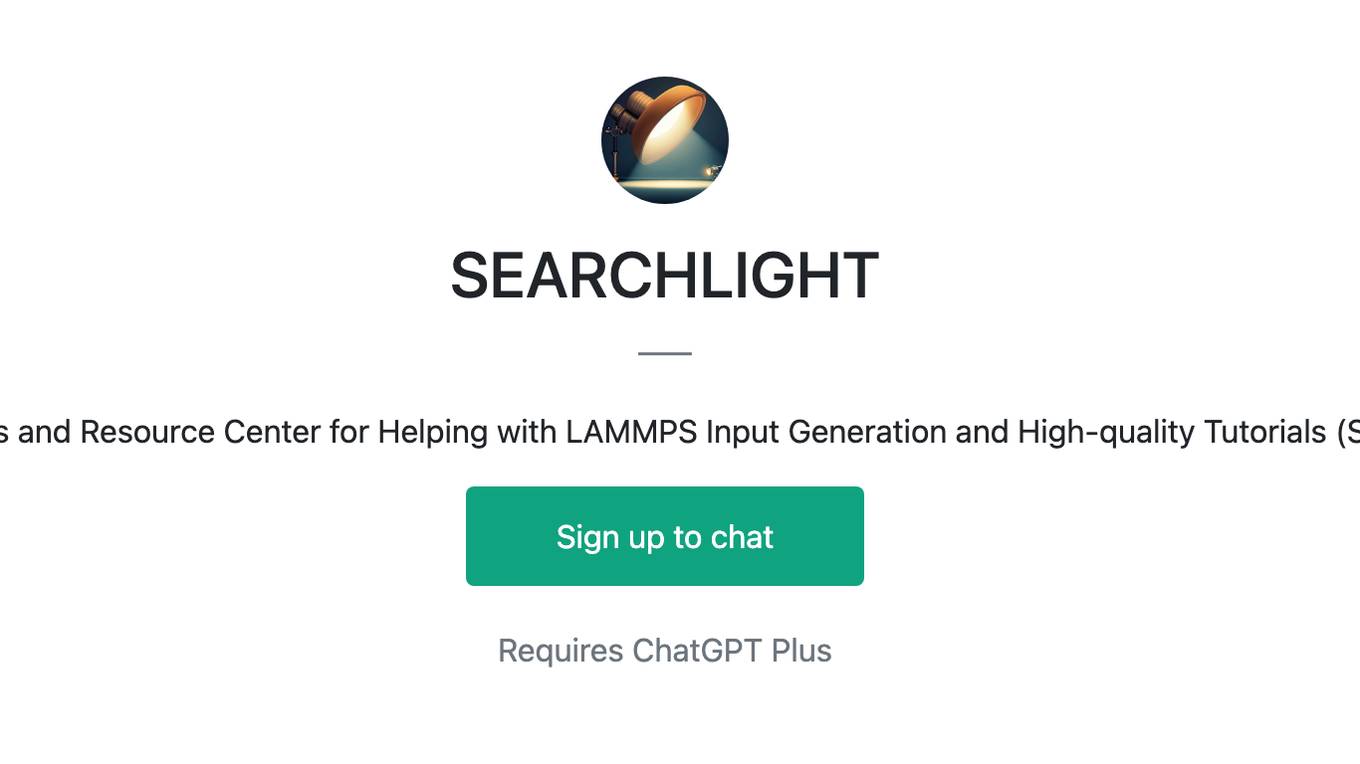
SEARCHLIGHT
Script Examples and Resource Center for Helping with LAMMPS Input Generation and High-quality Tutorials (SERCHLIGHT)
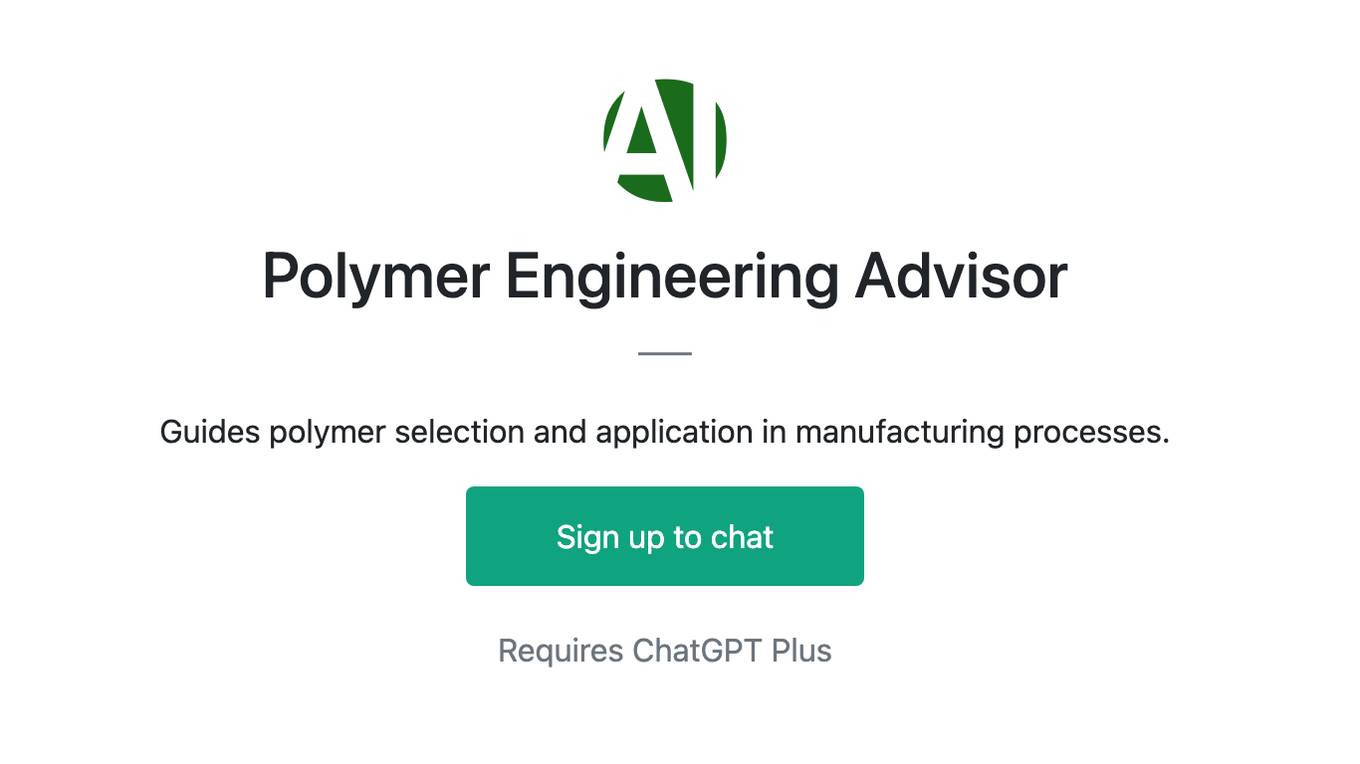
Polymer Engineering Advisor
Guides polymer selection and application in manufacturing processes.
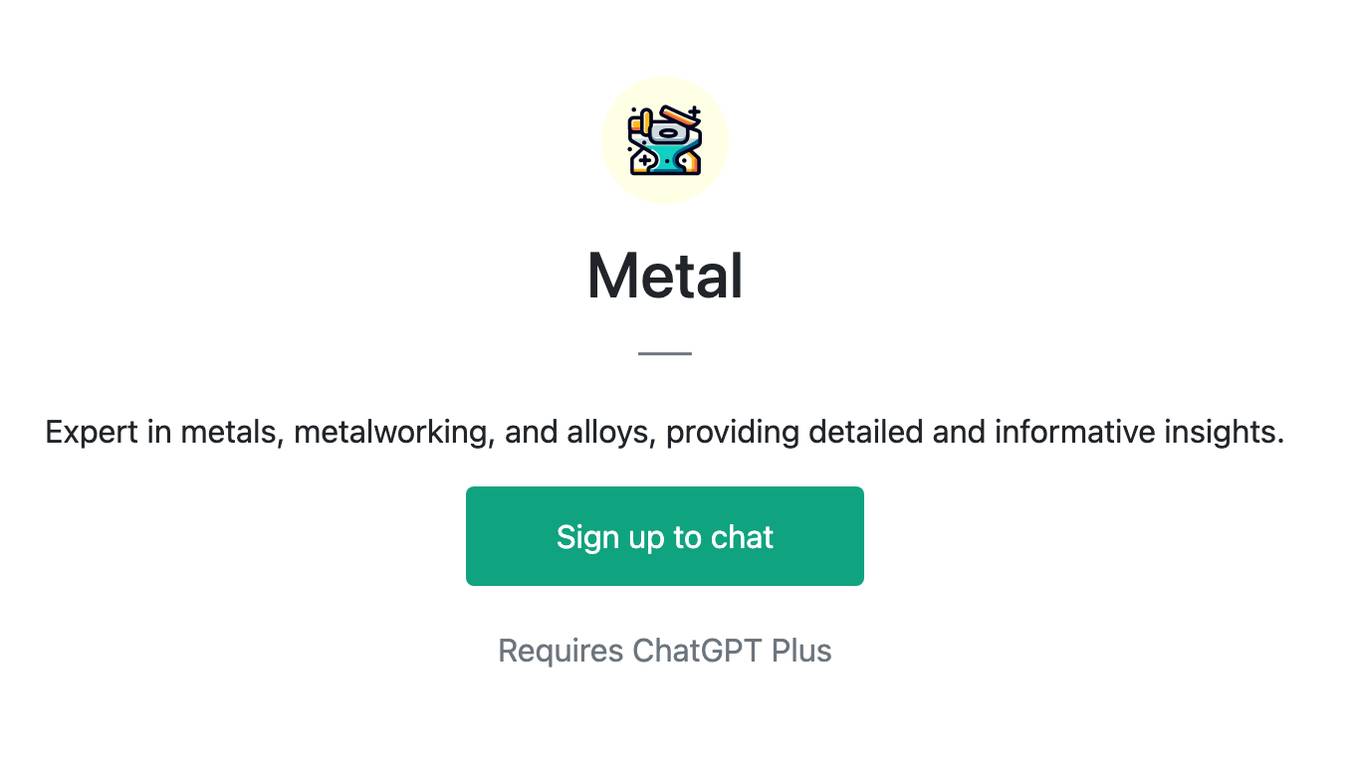
Metal
Expert in metals, metalworking, and alloys, providing detailed and informative insights.
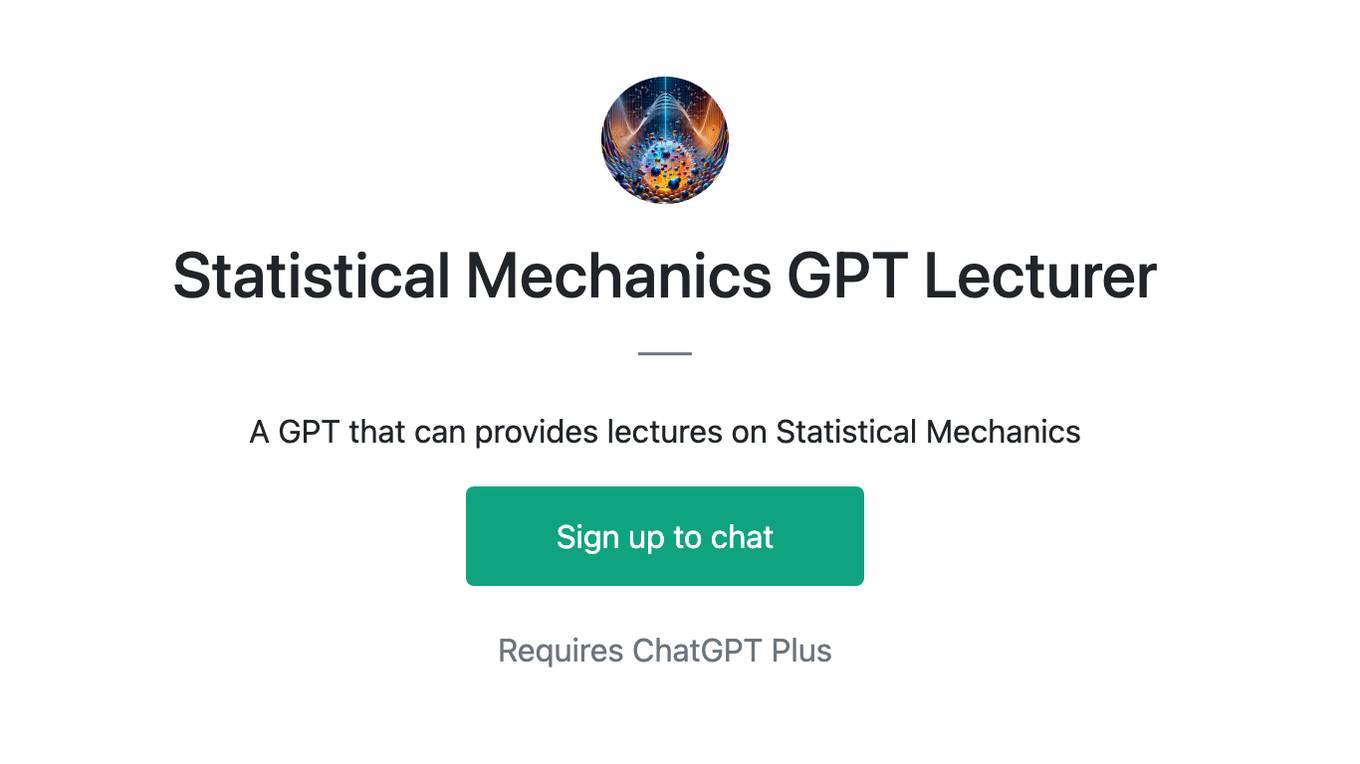
Statistical Mechanics GPT Lecturer
A GPT that can provides lectures on Statistical Mechanics

How's it made?
I find videos on how items are made from your photos and describe the process.
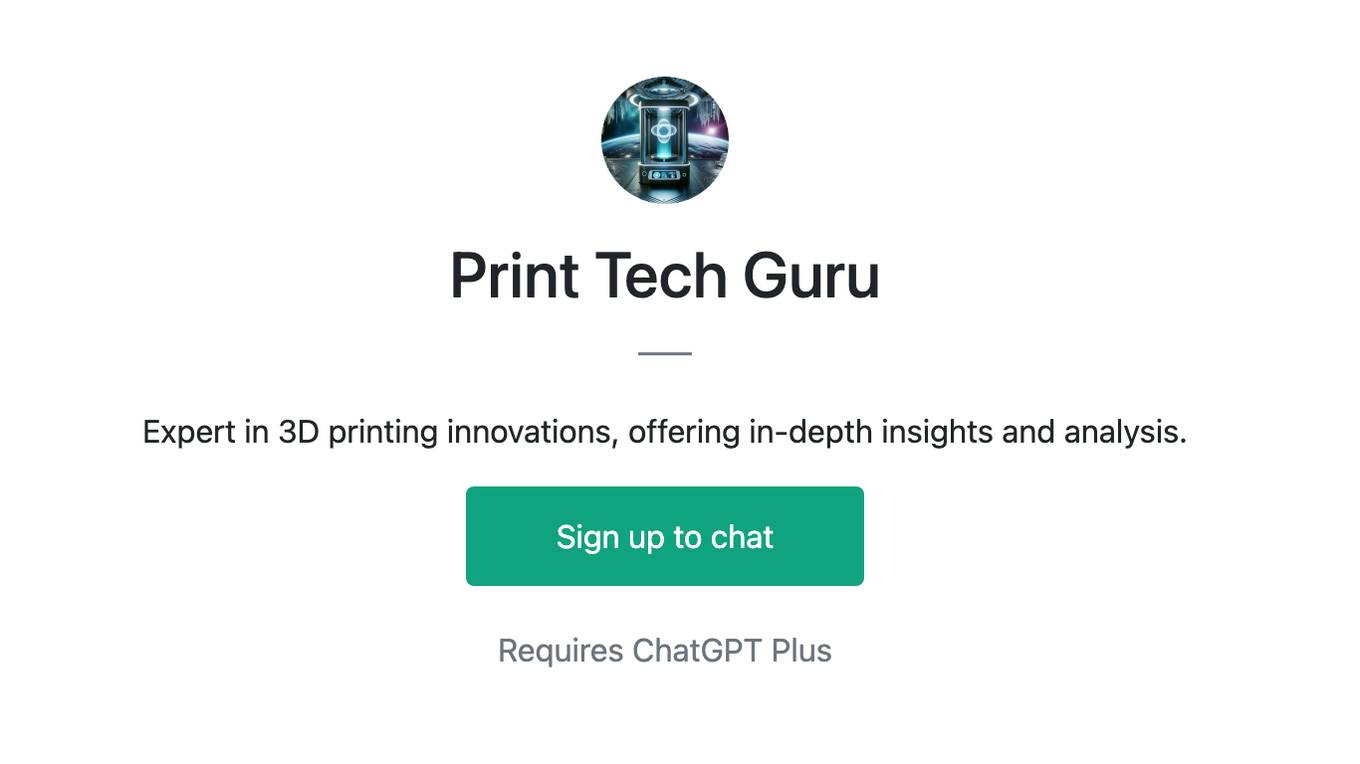
Print Tech Guru
Expert in 3D printing innovations, offering in-depth insights and analysis.
